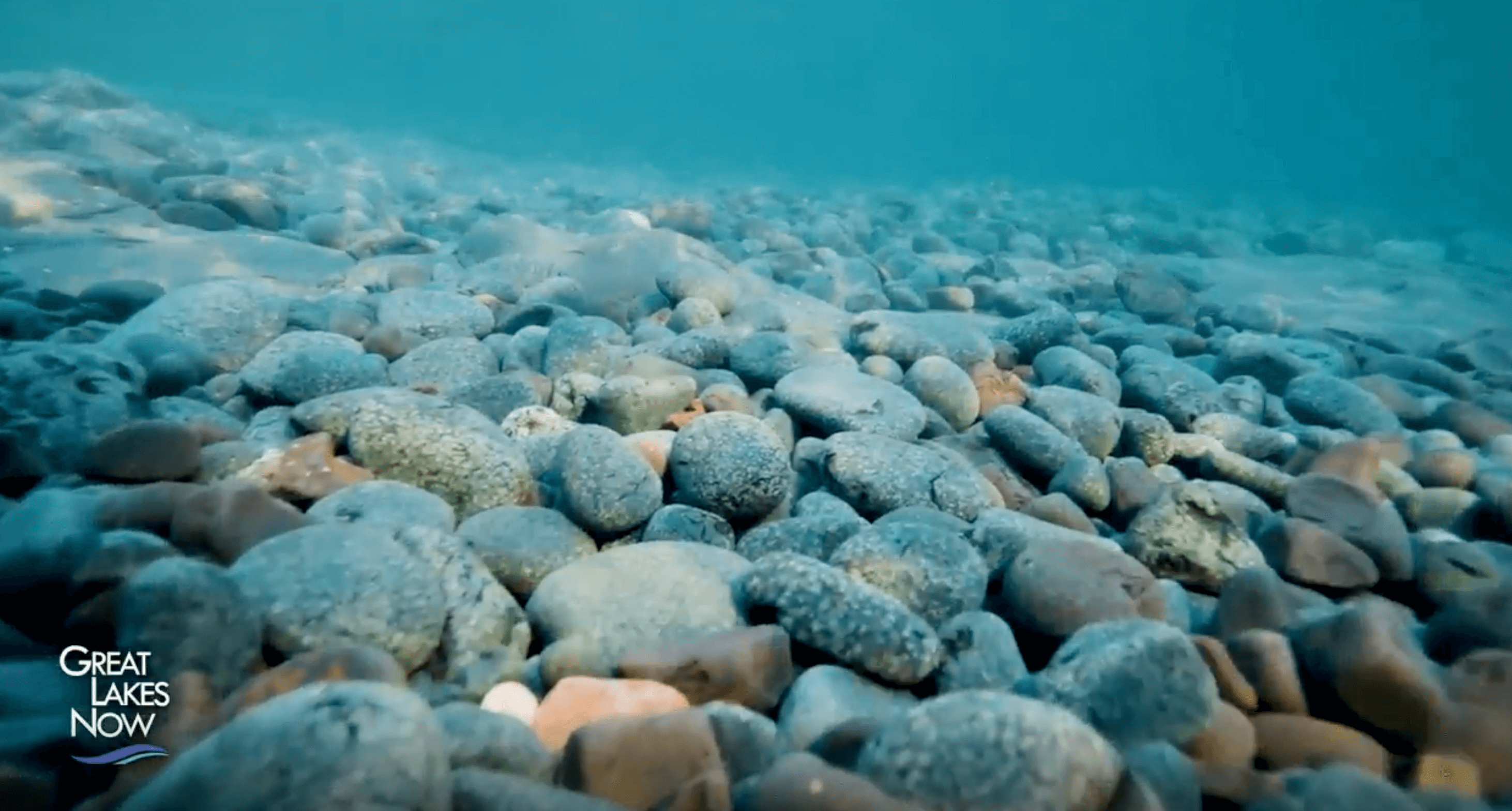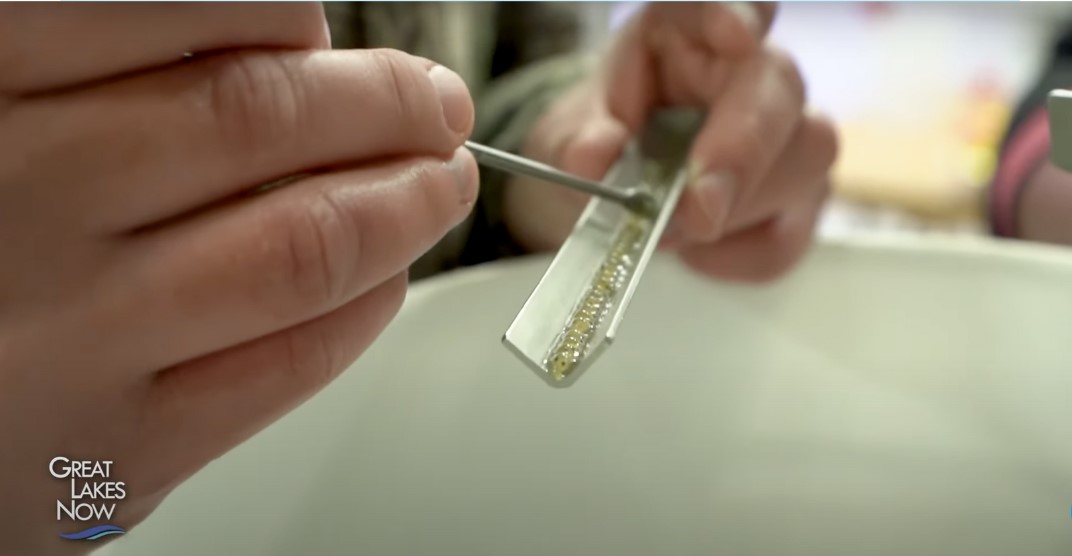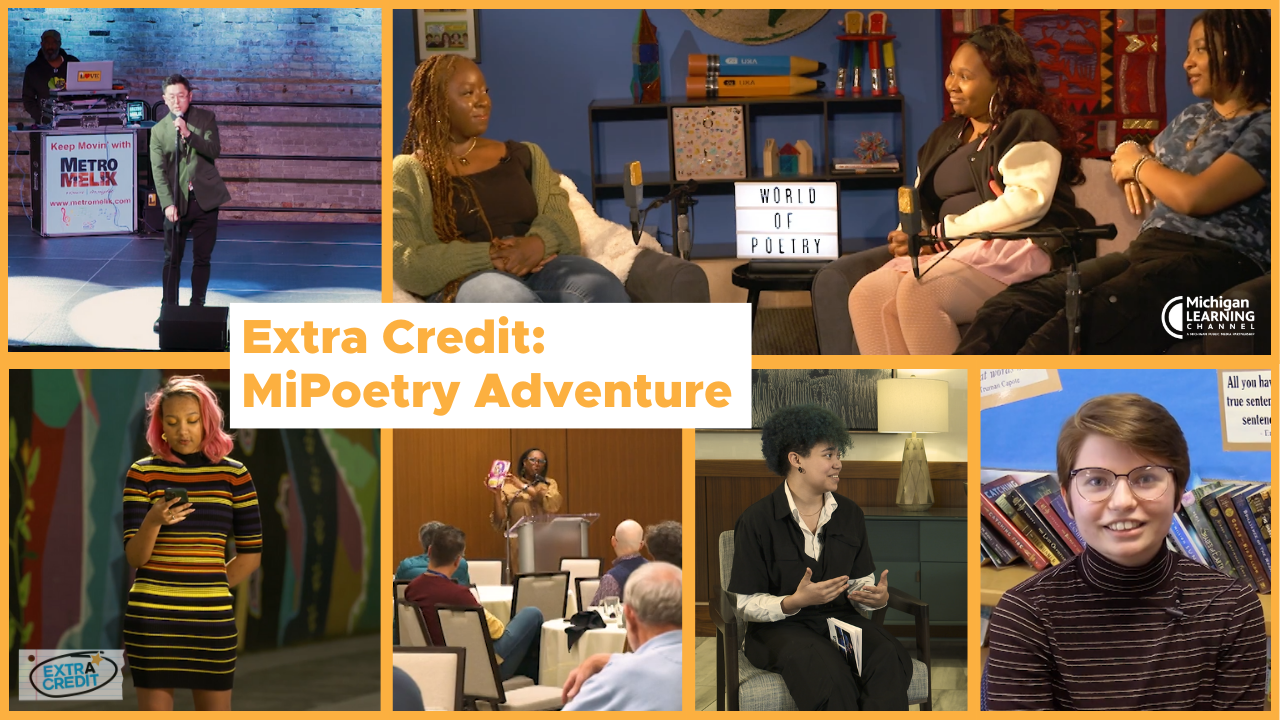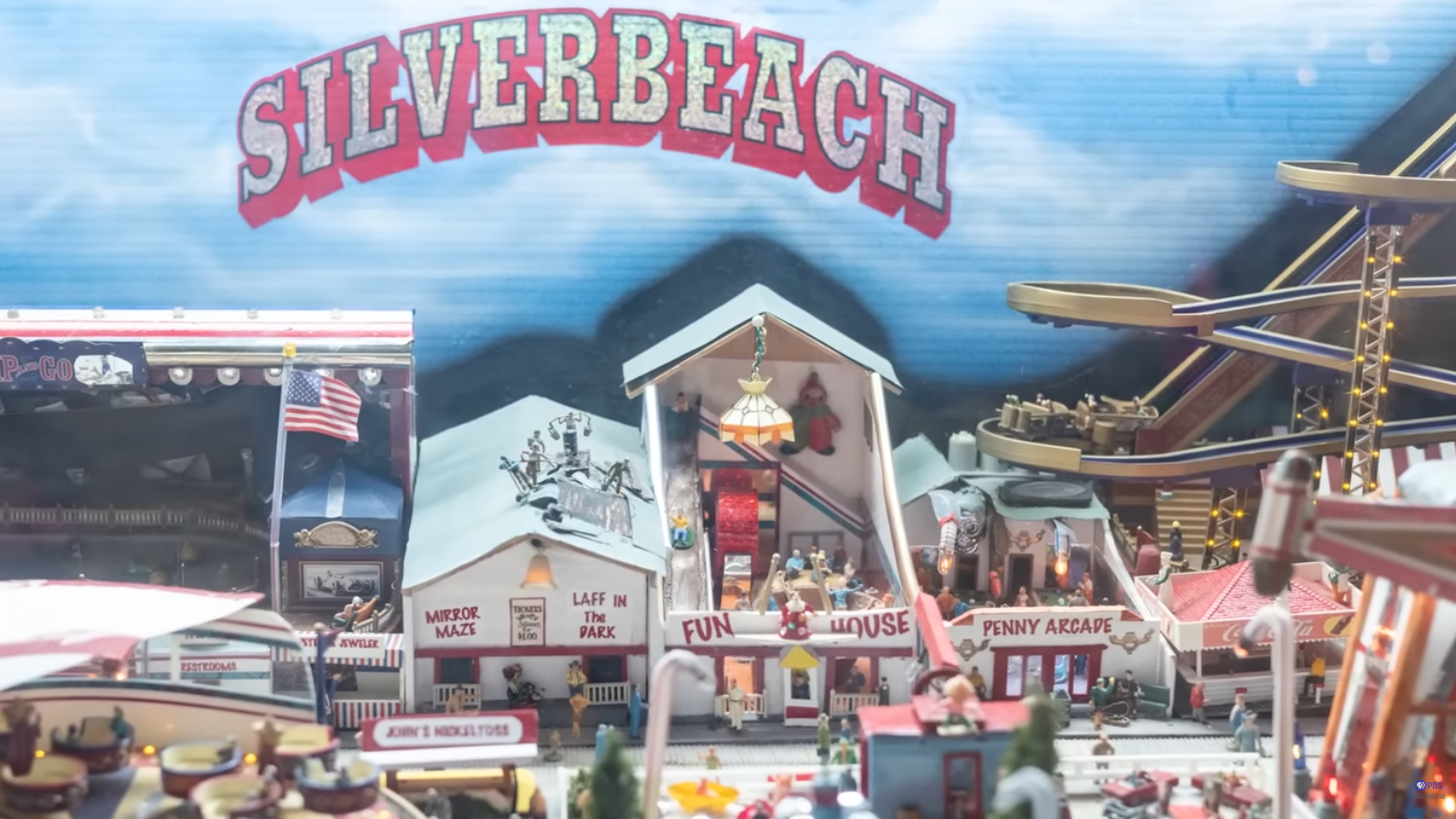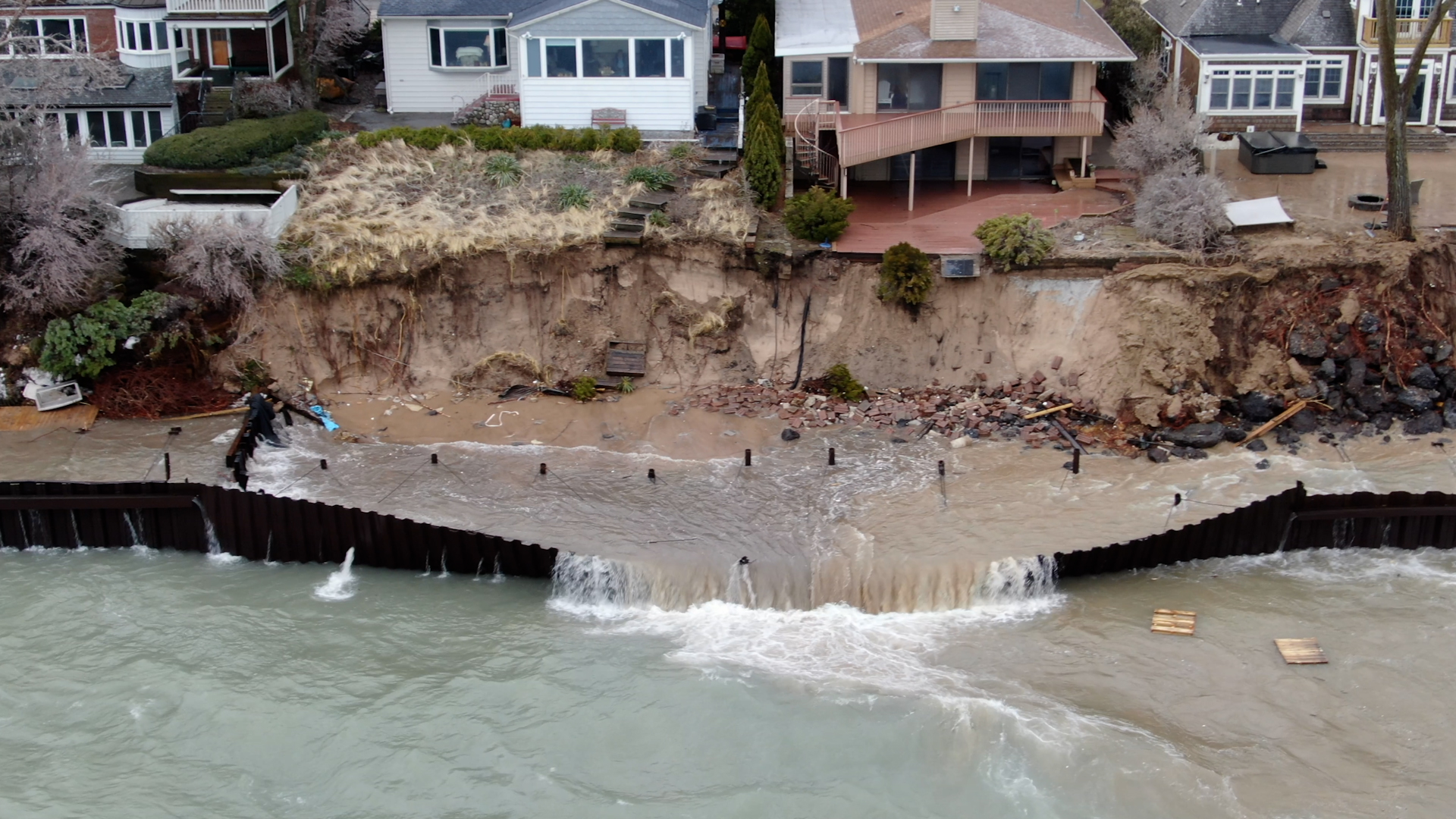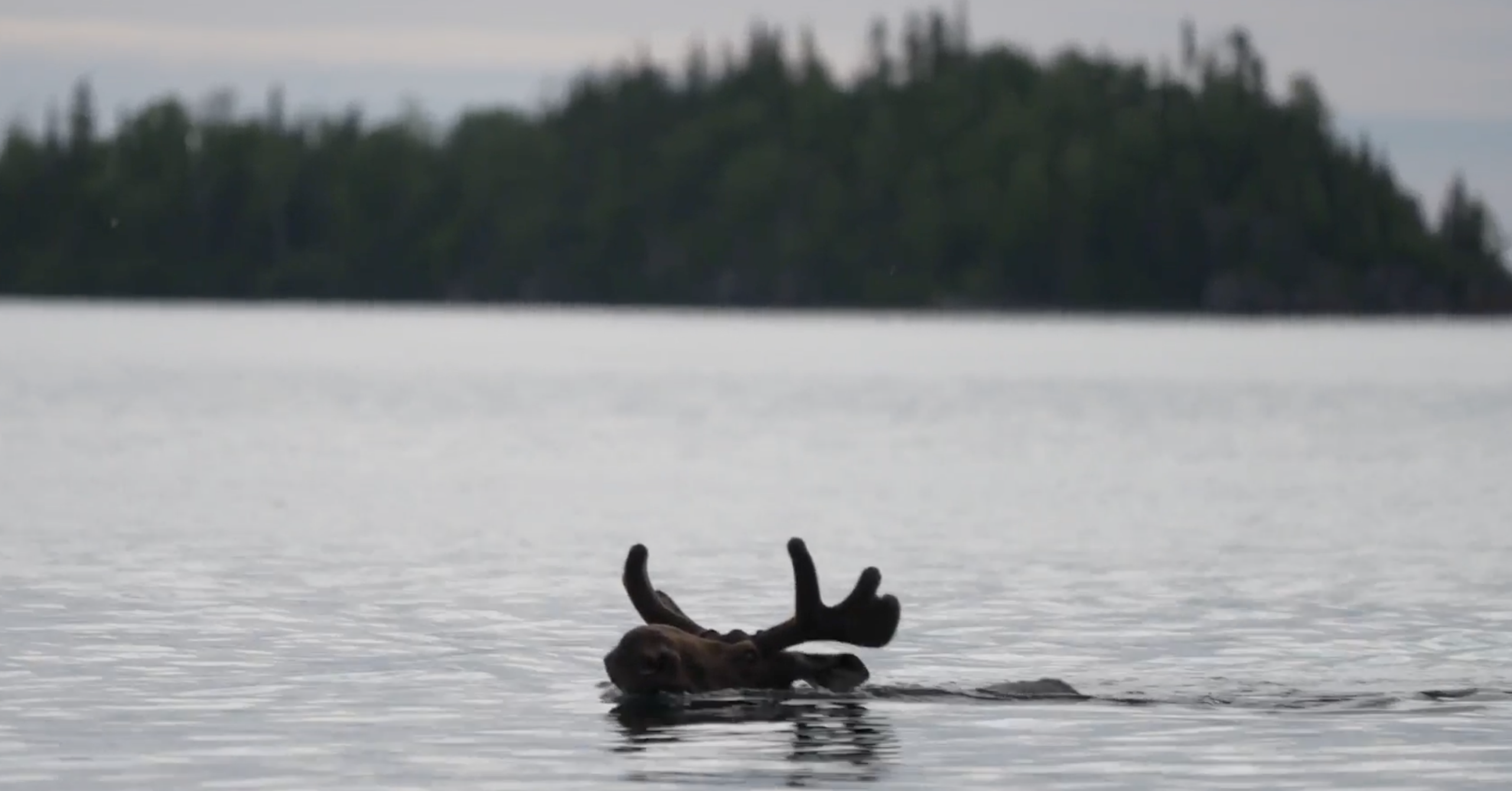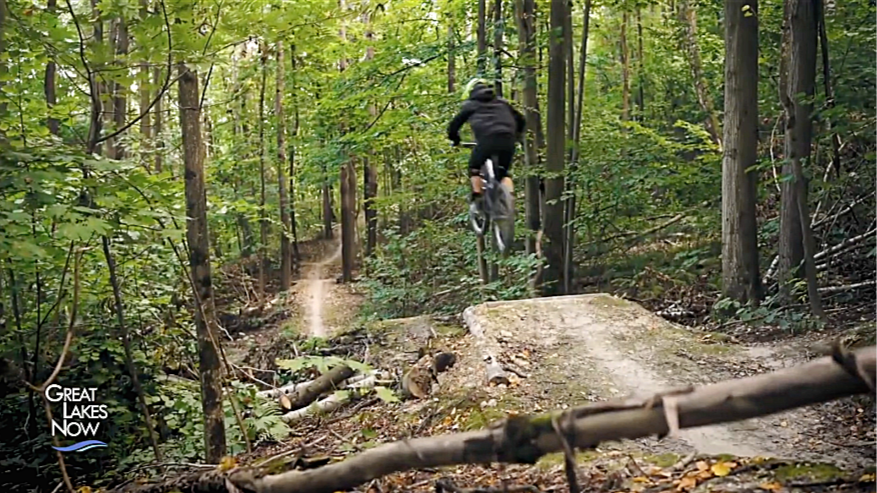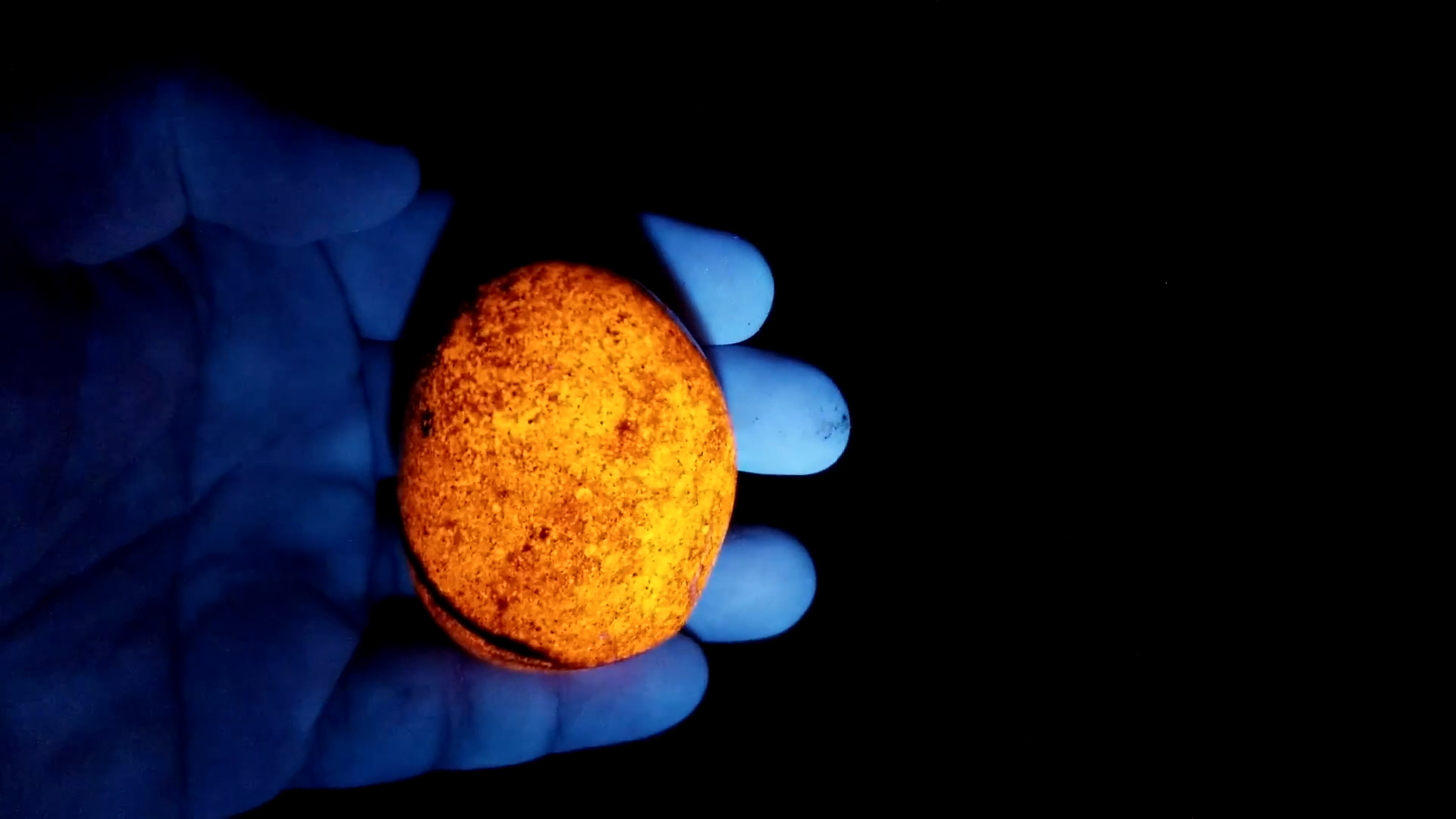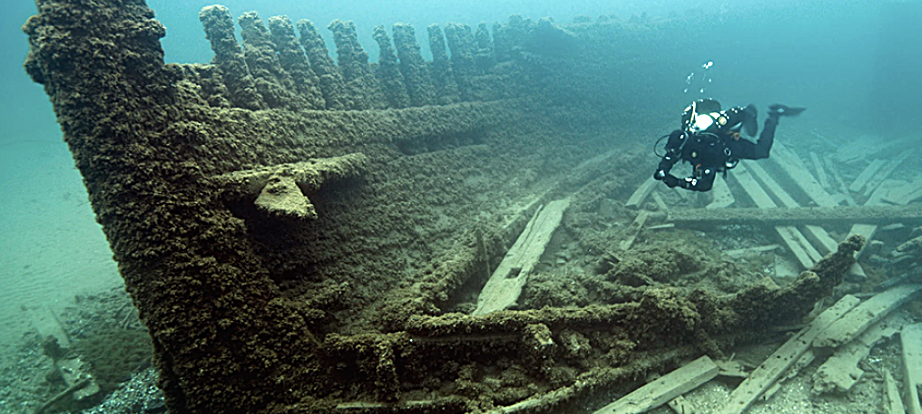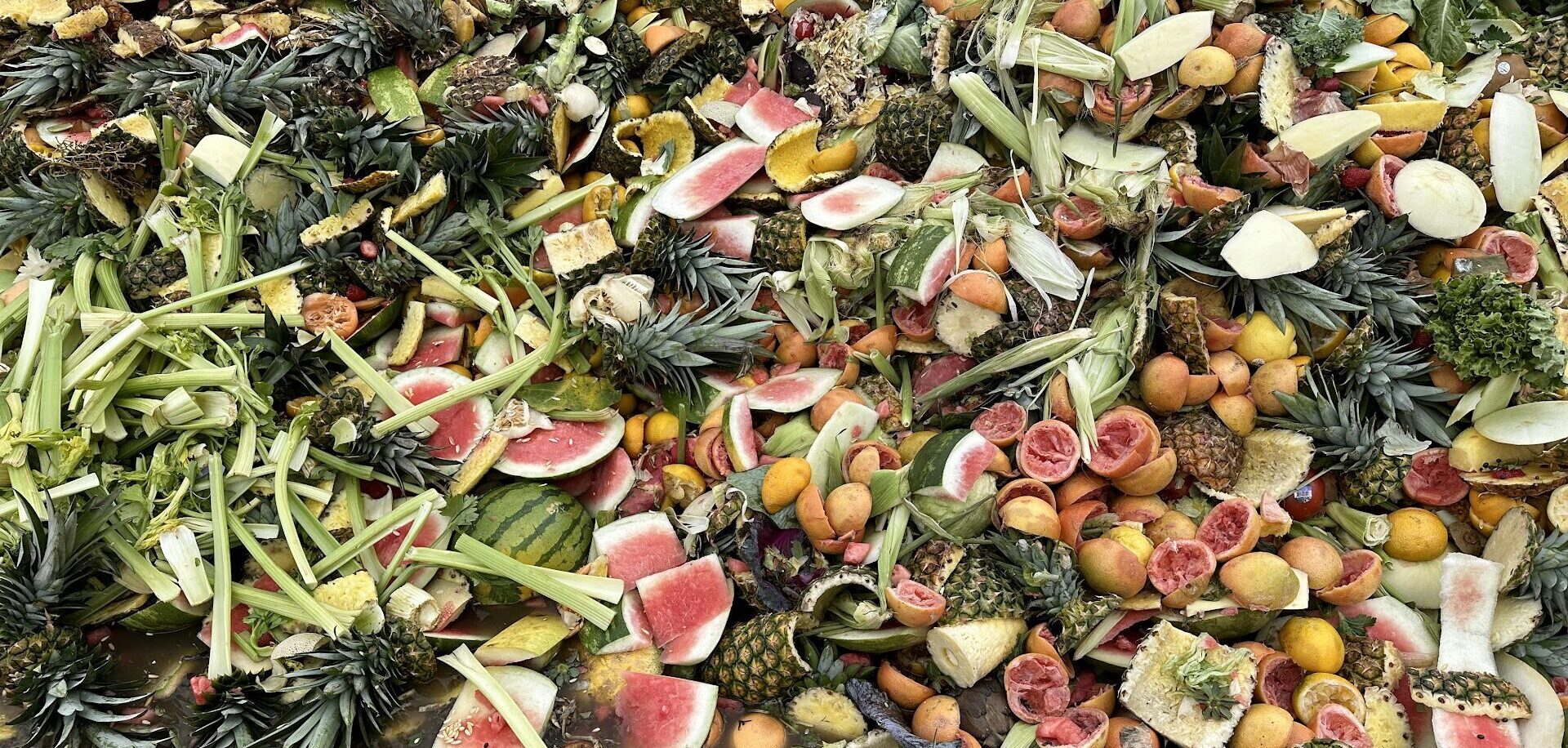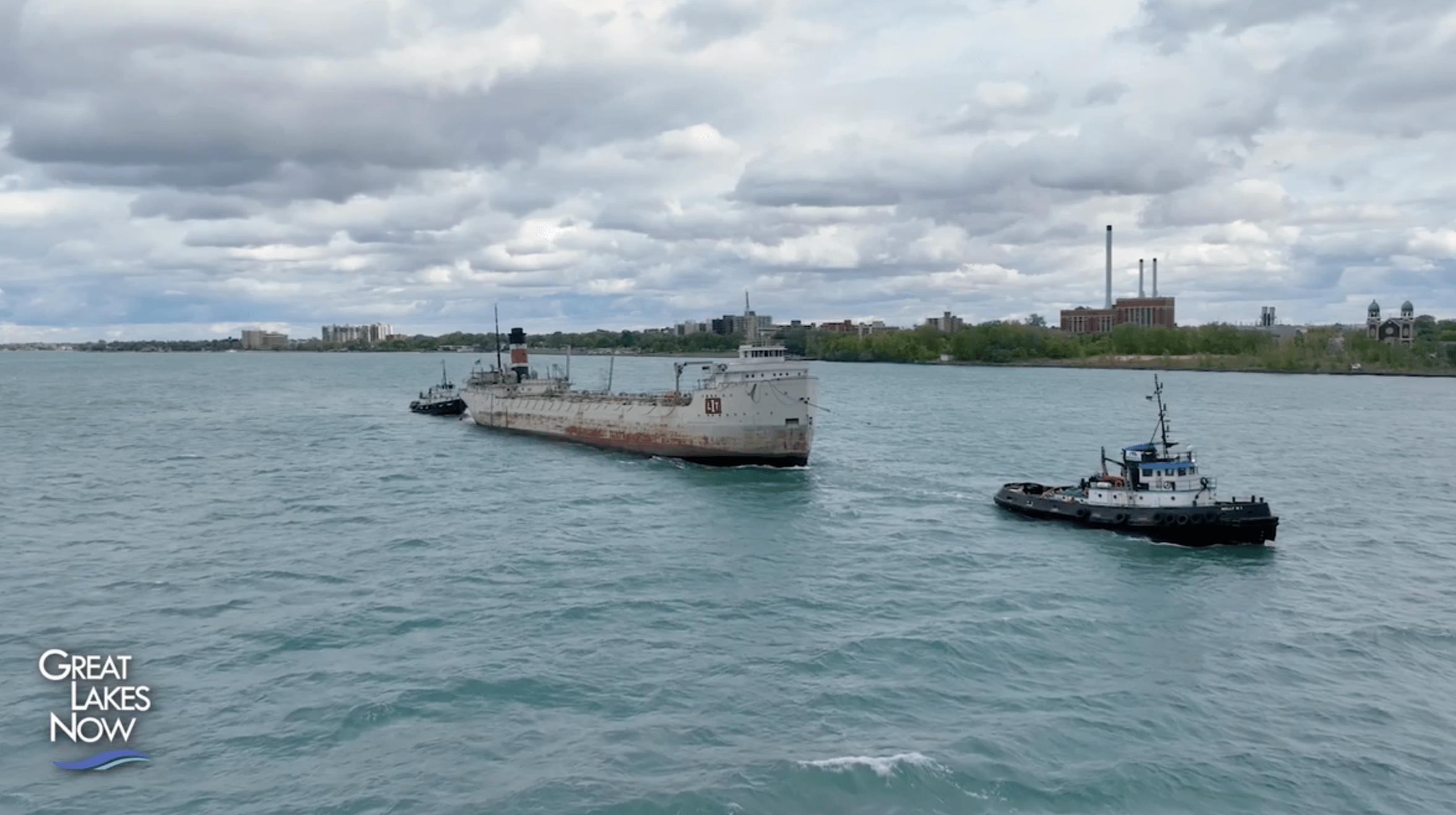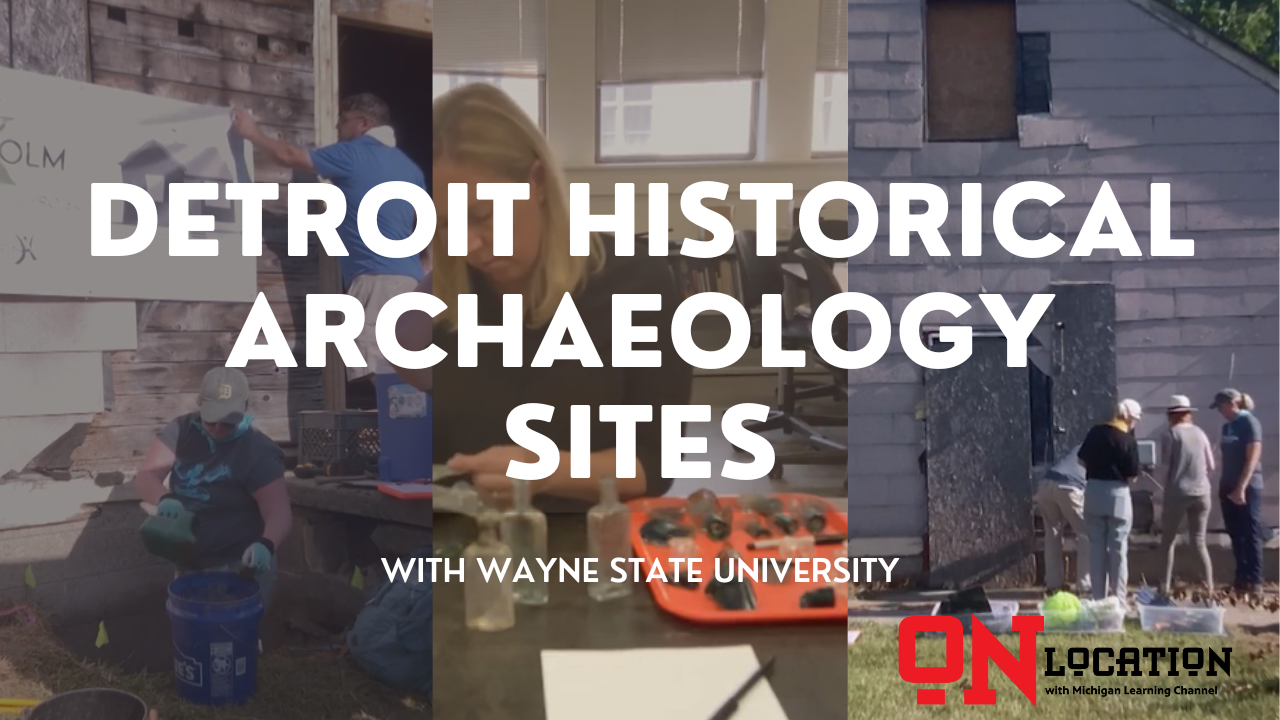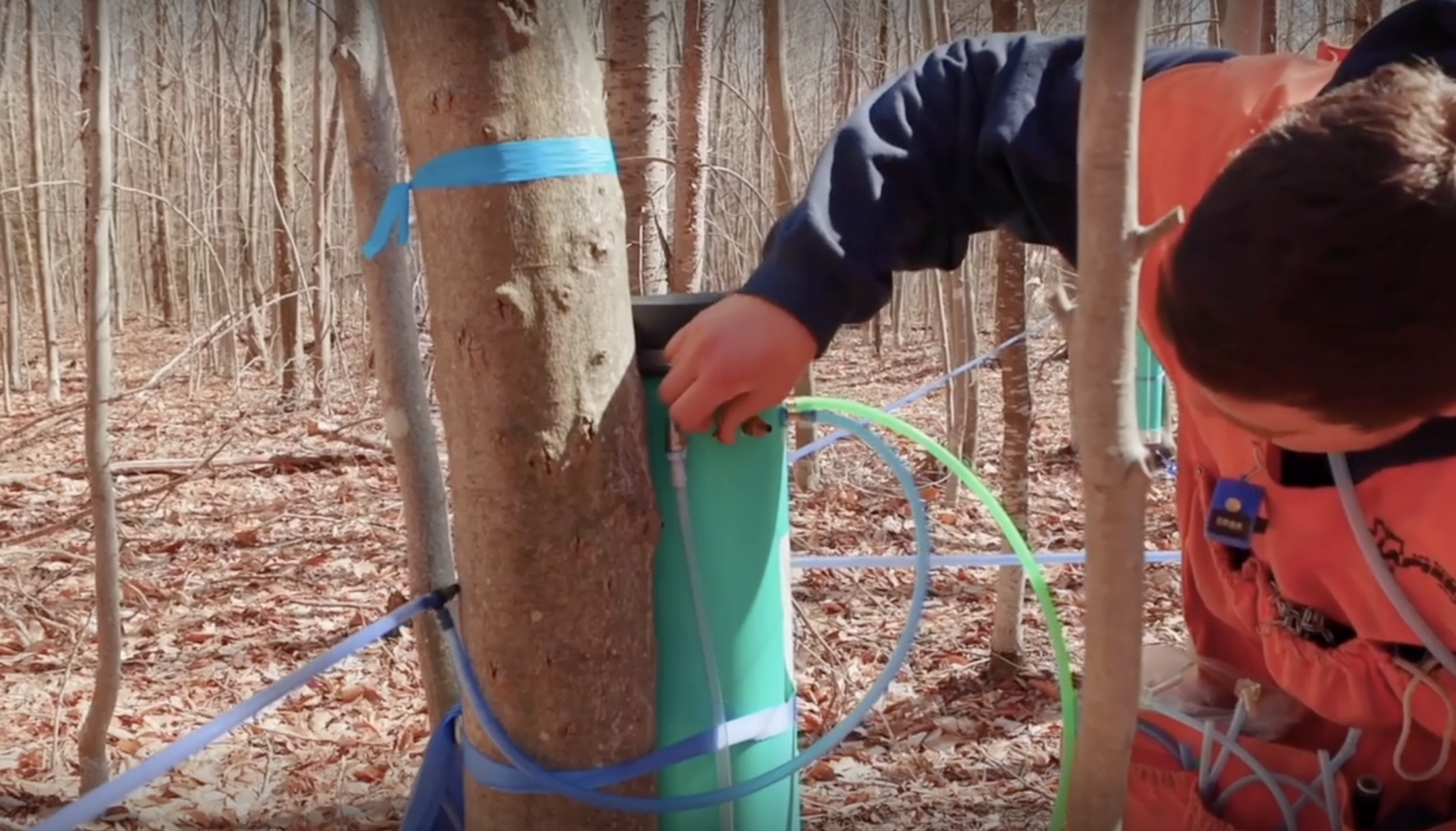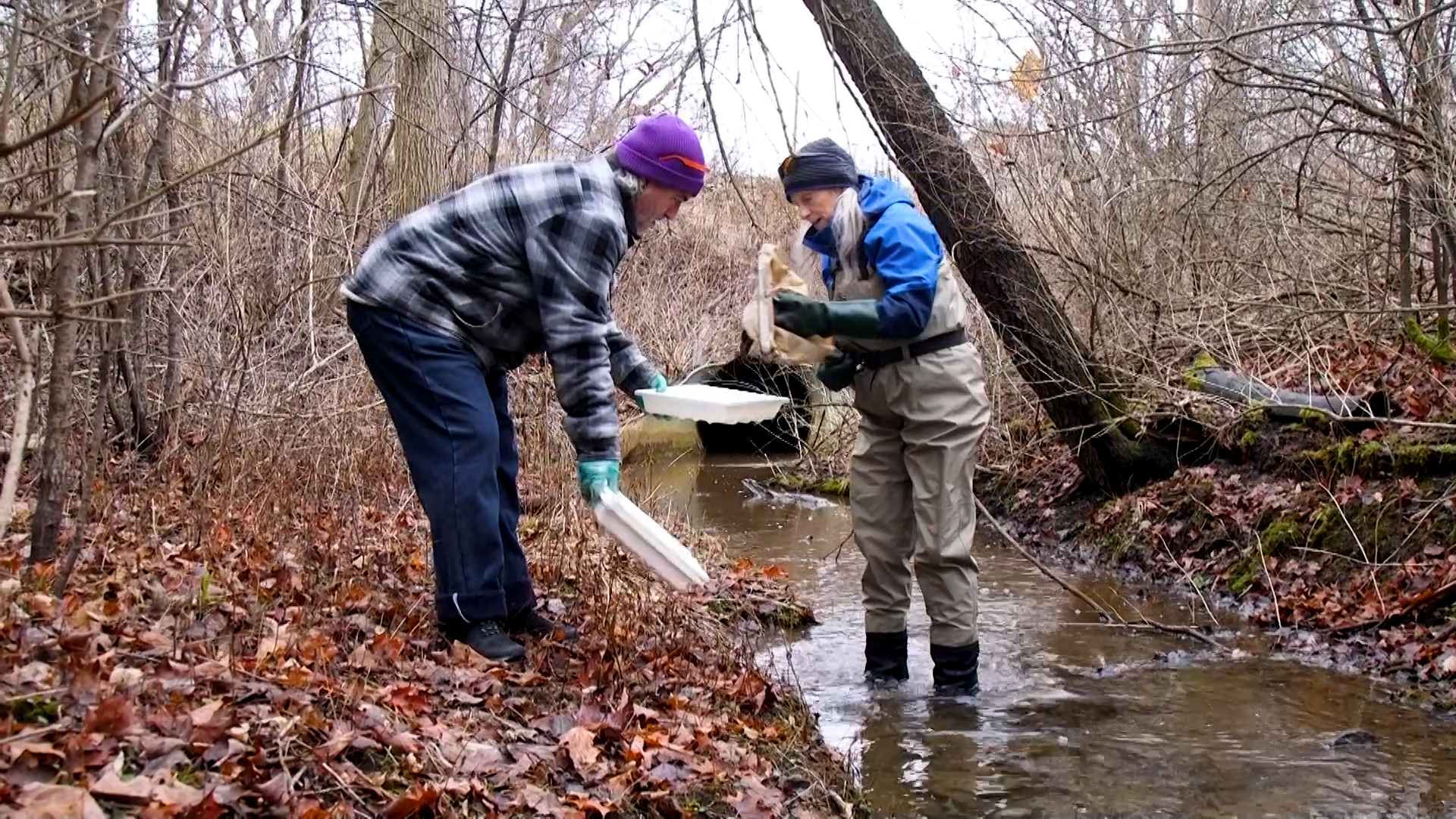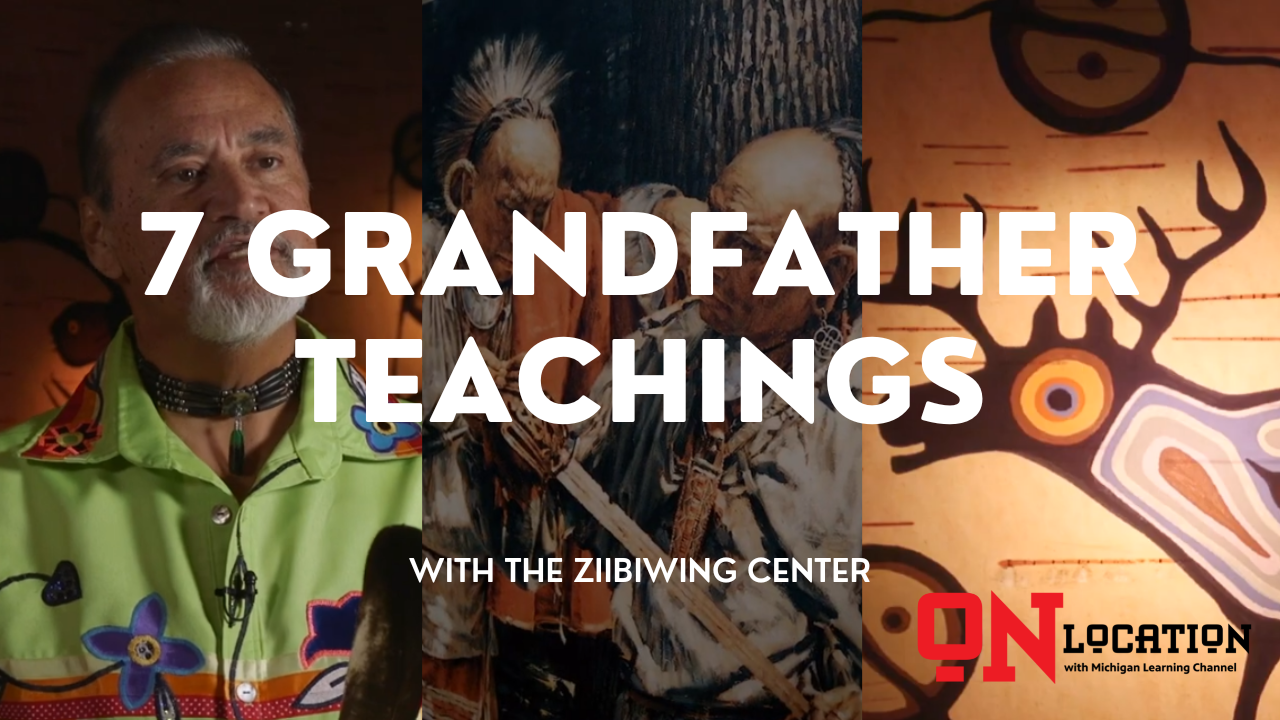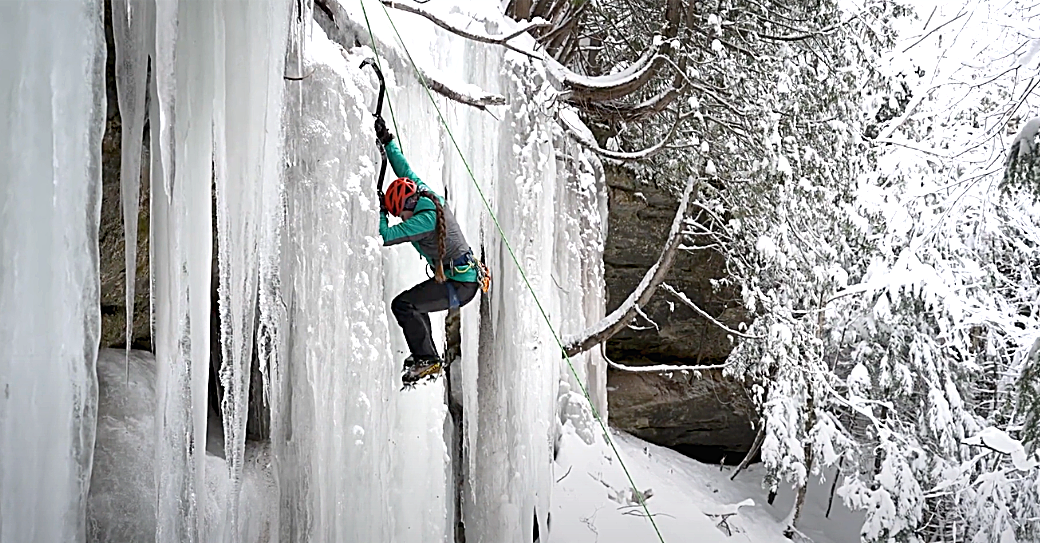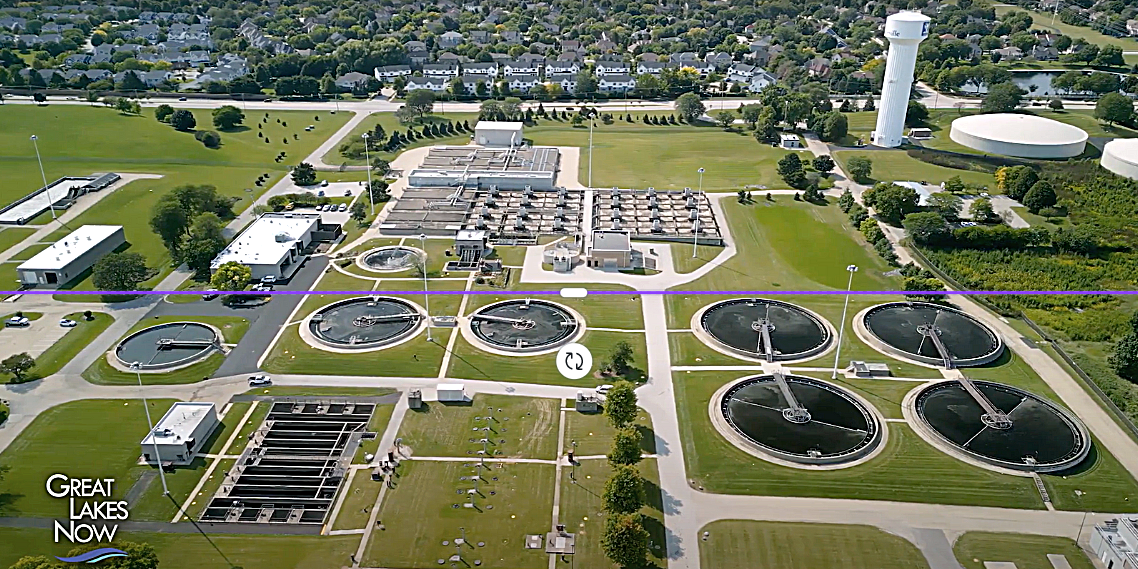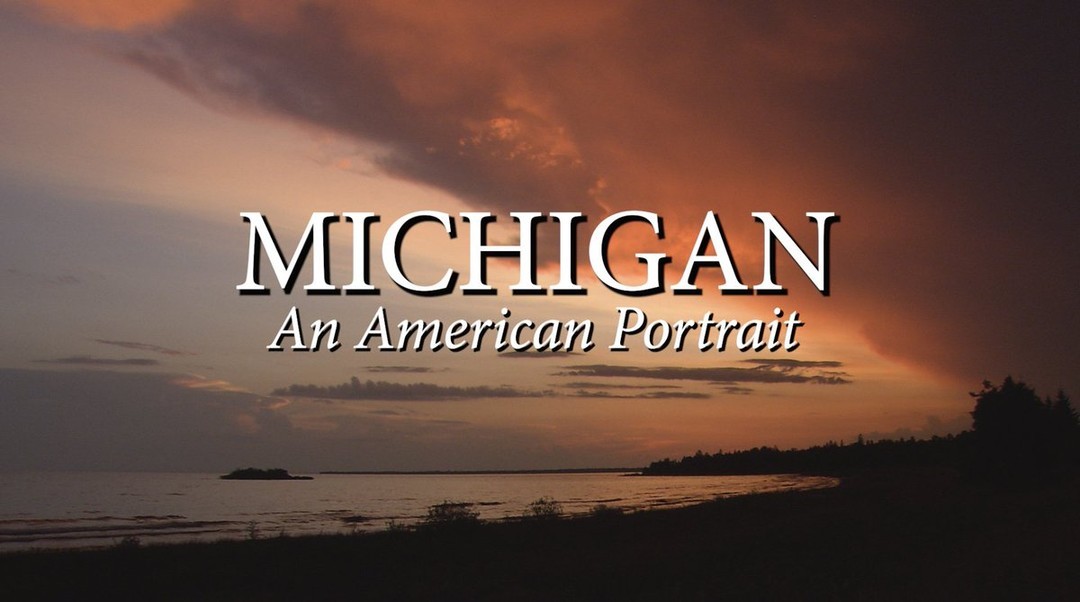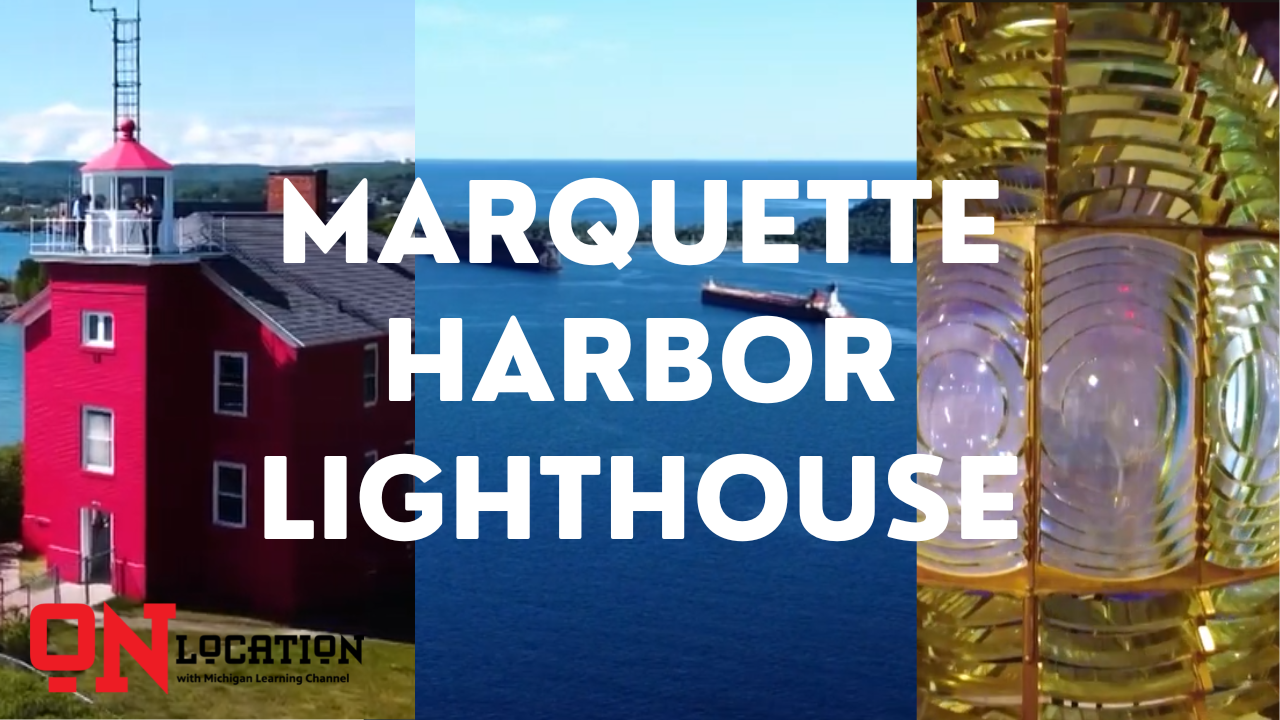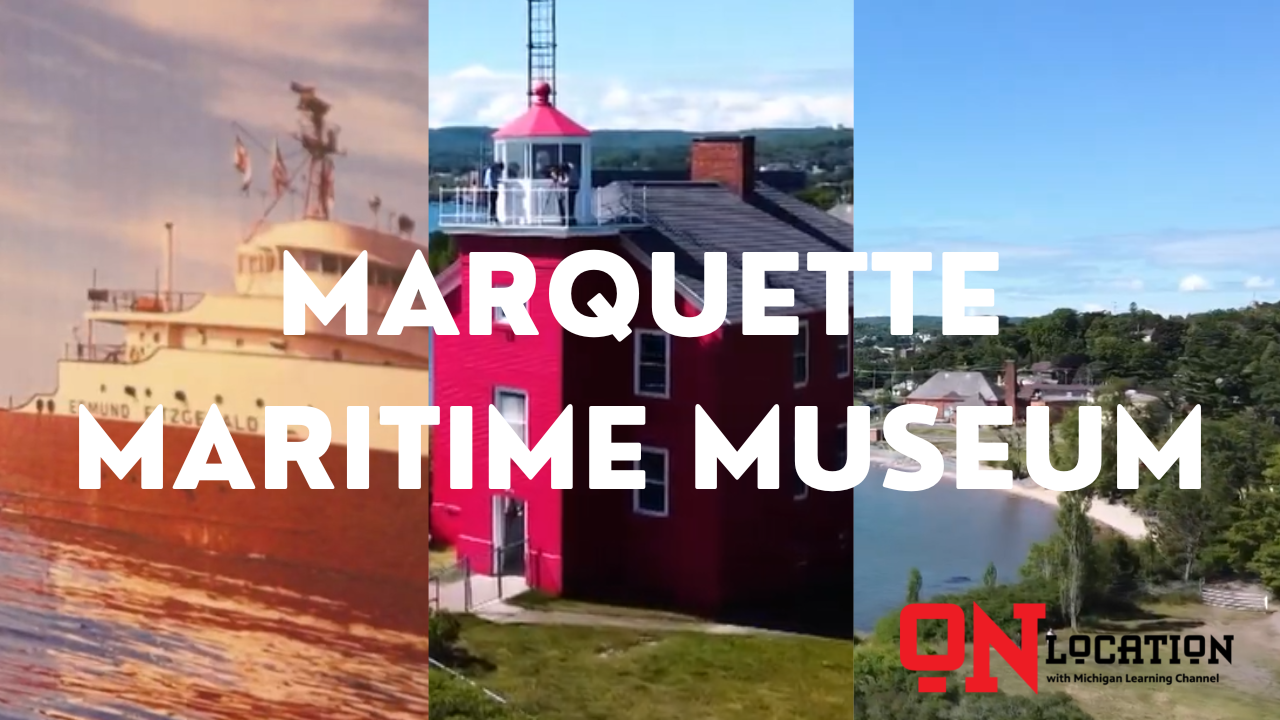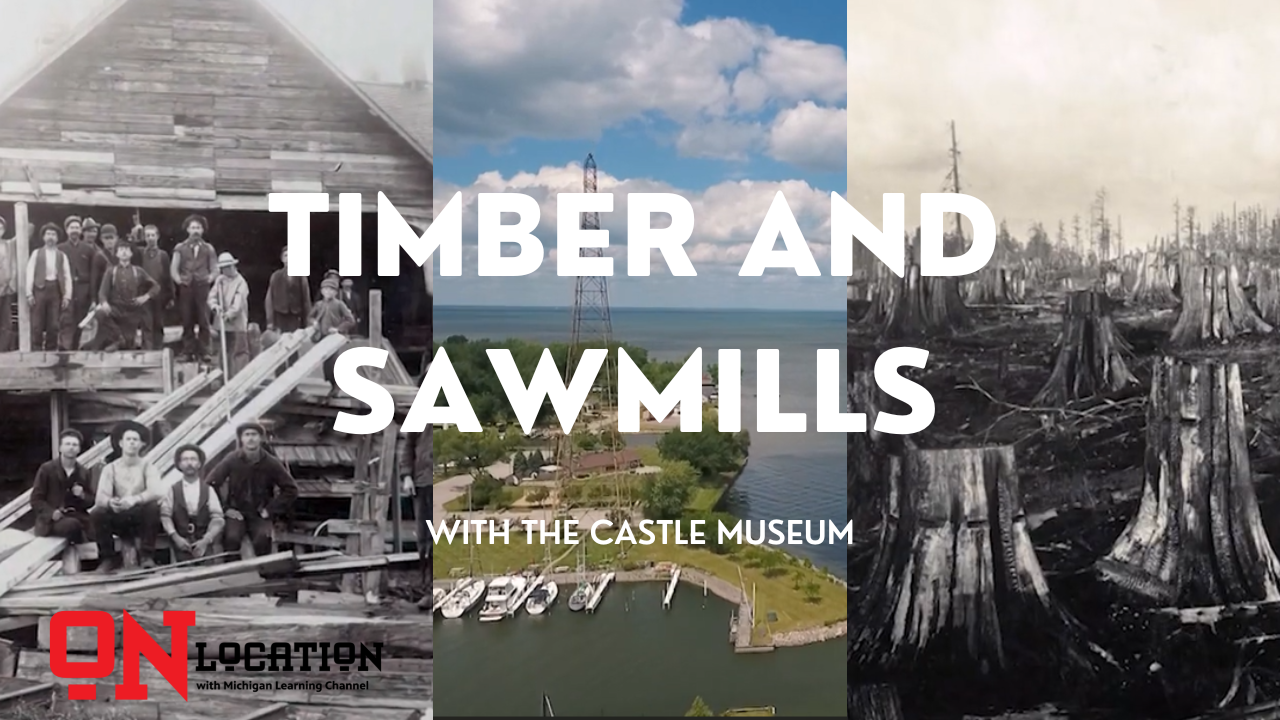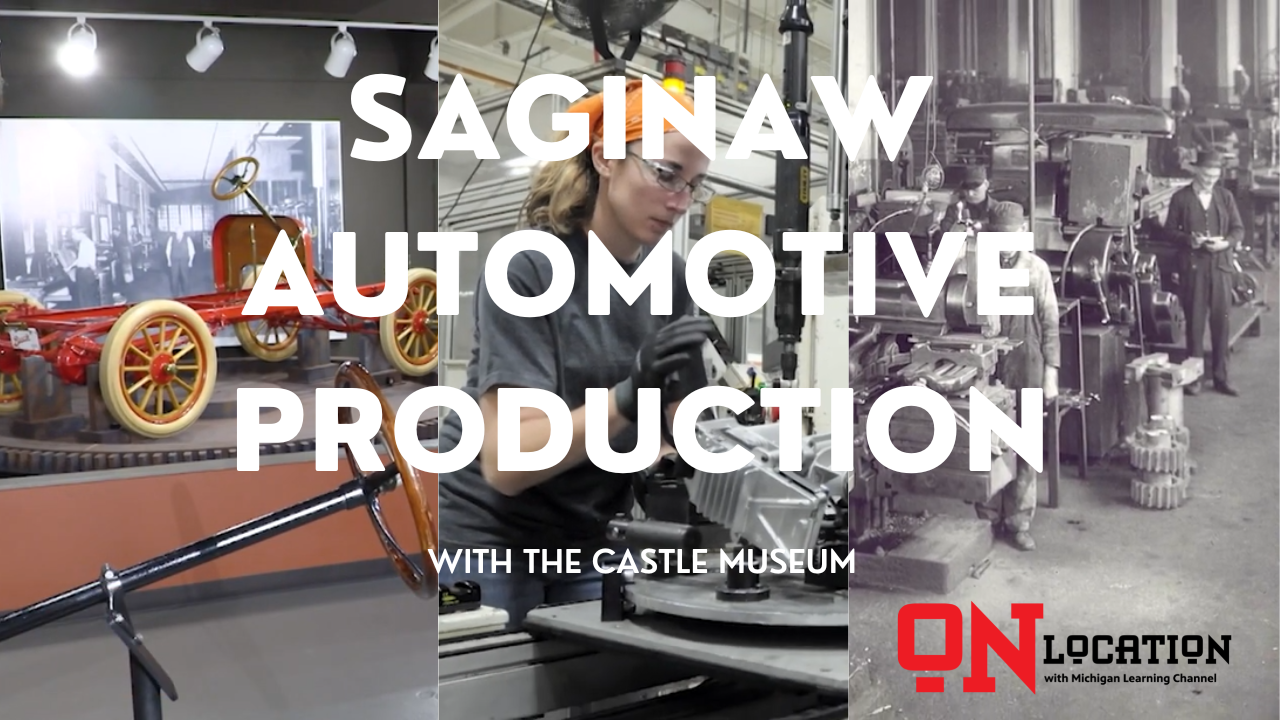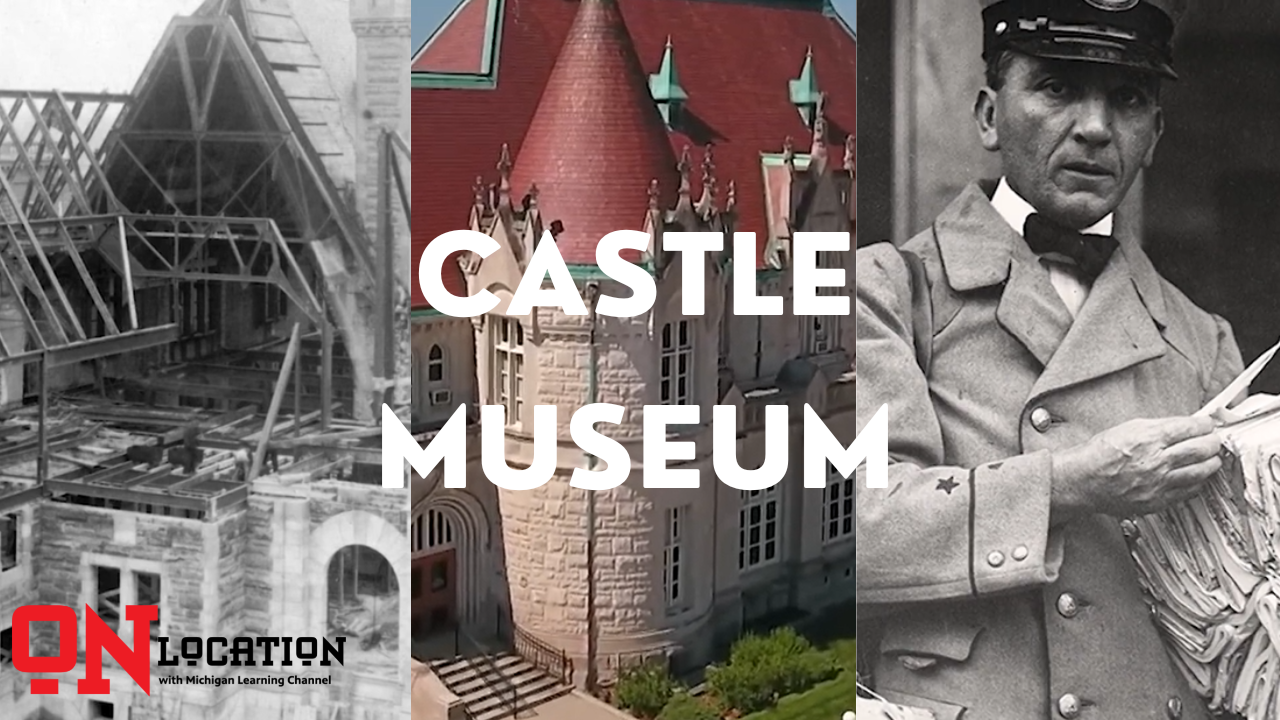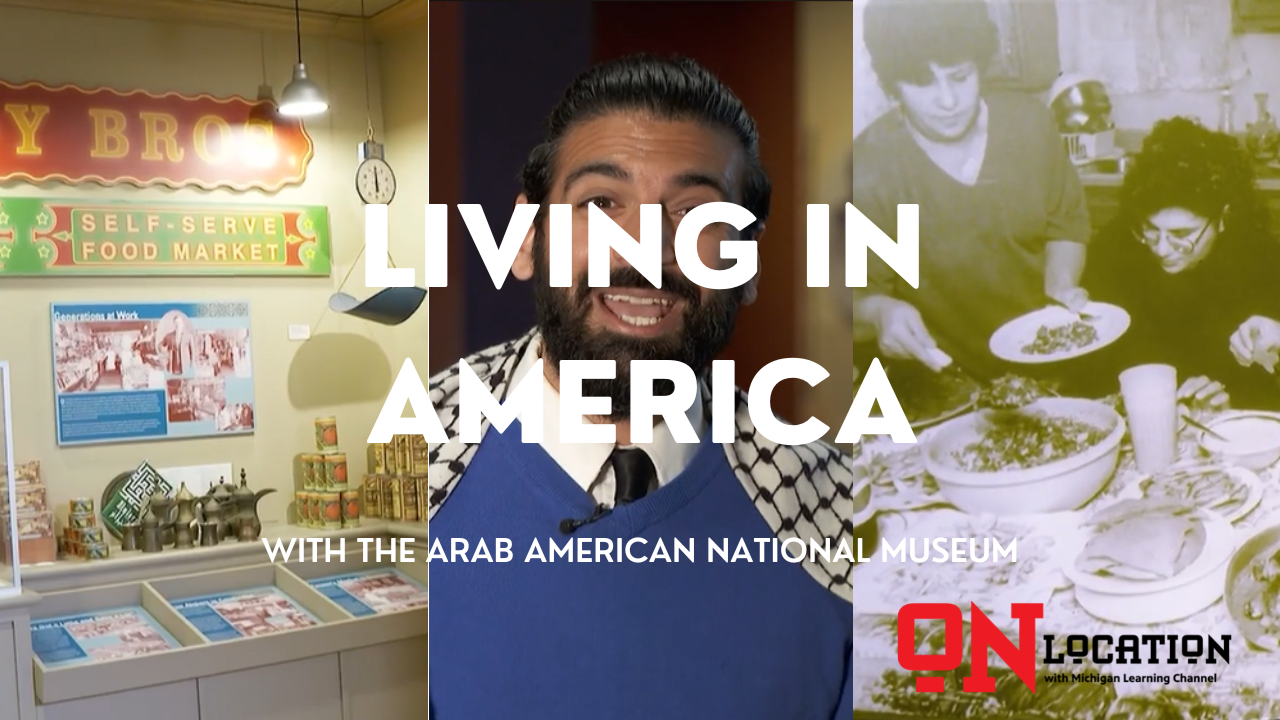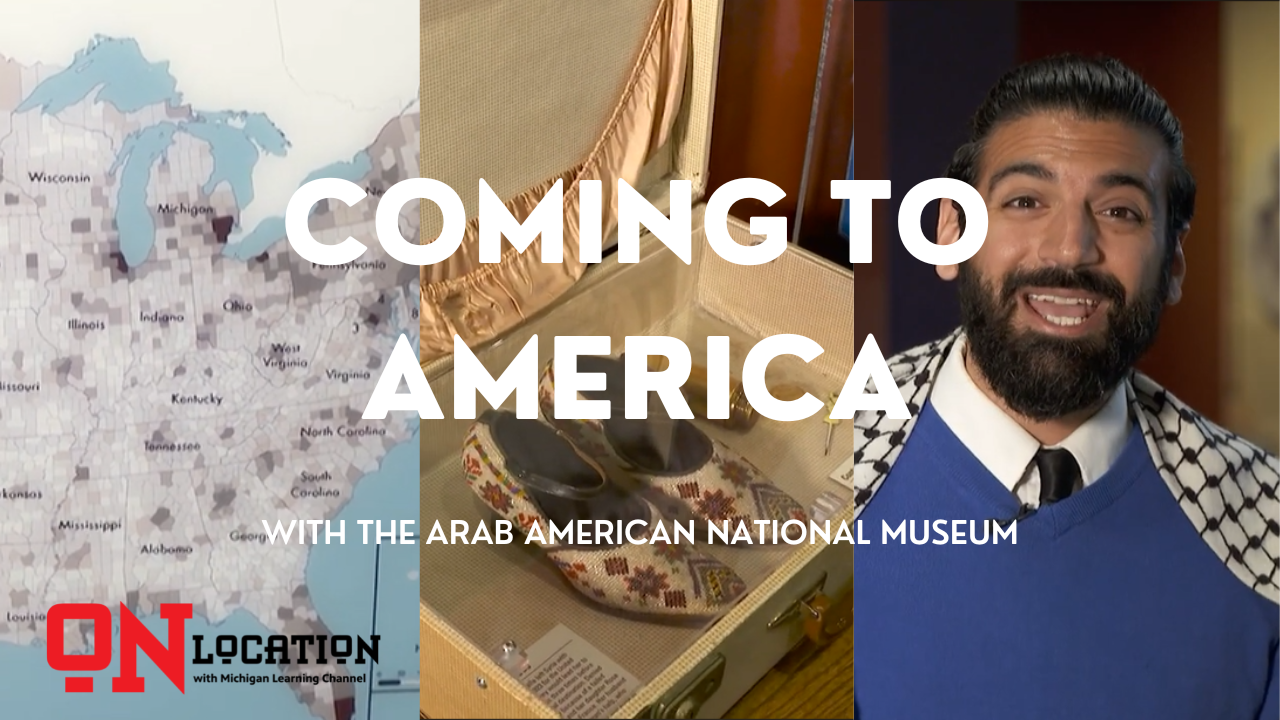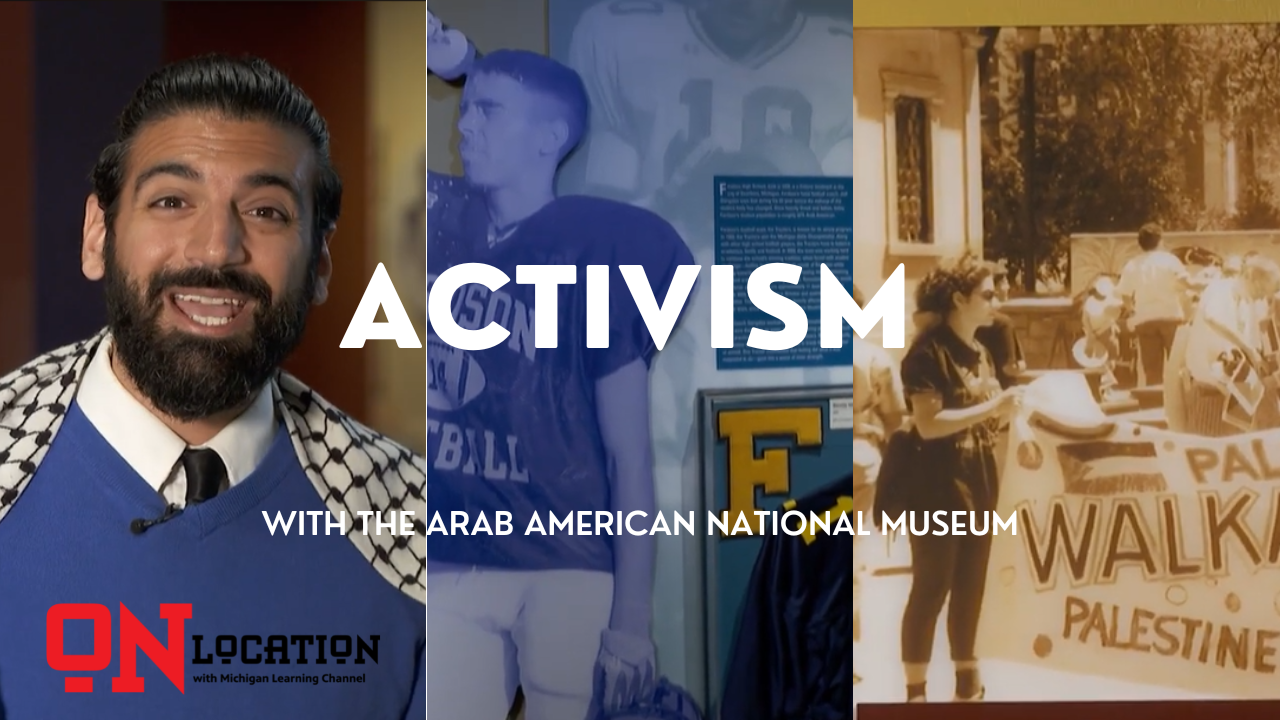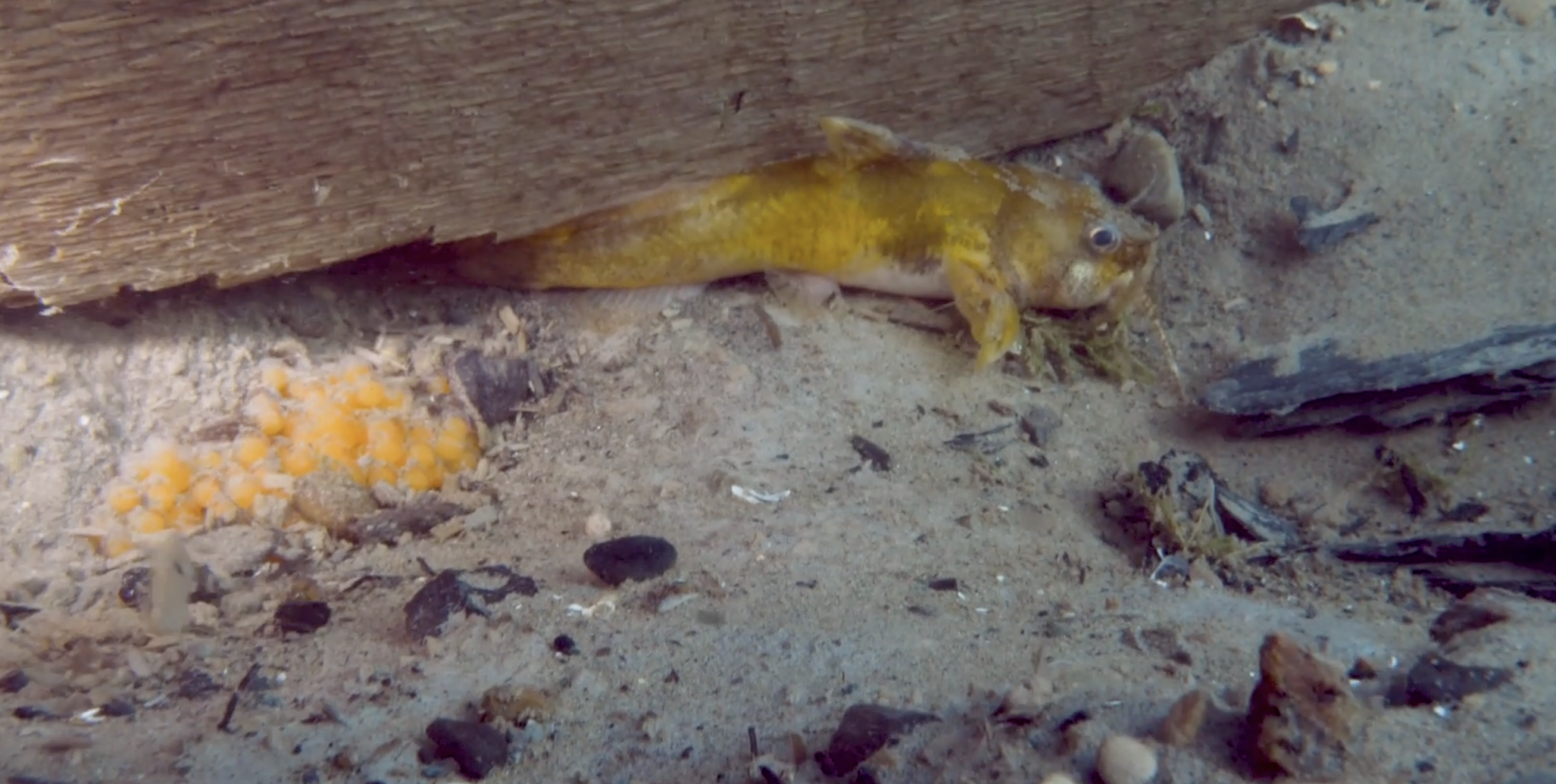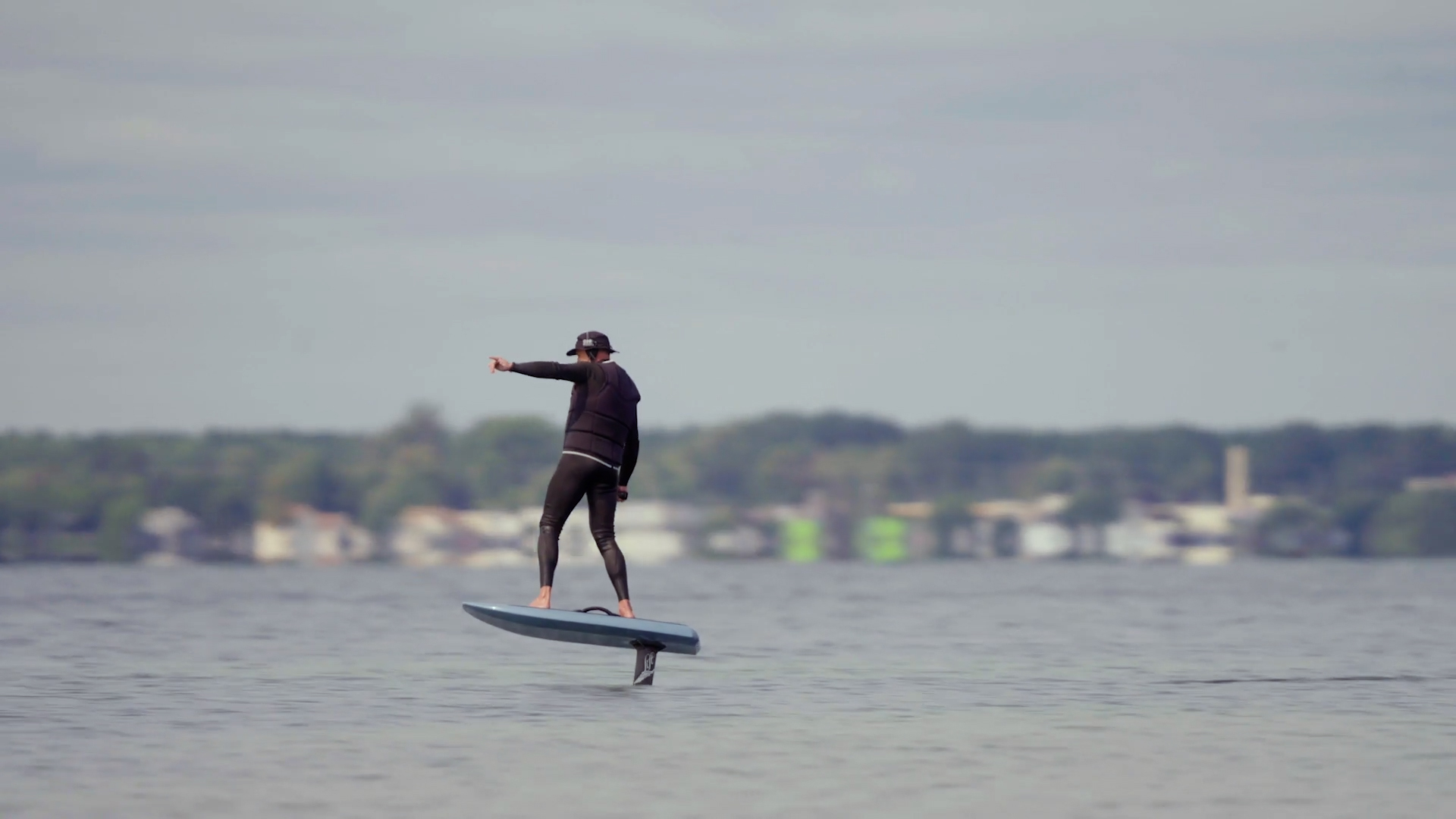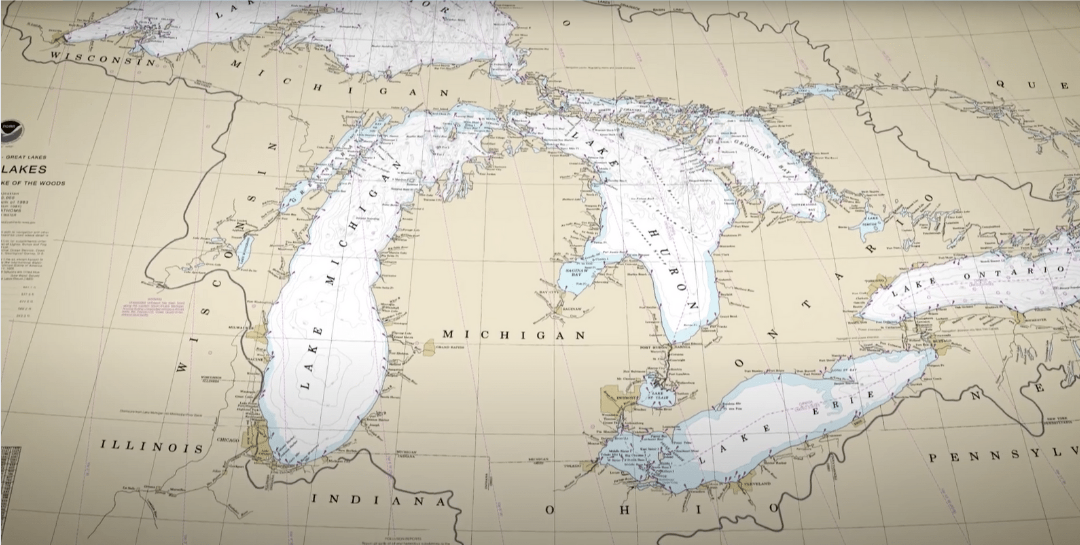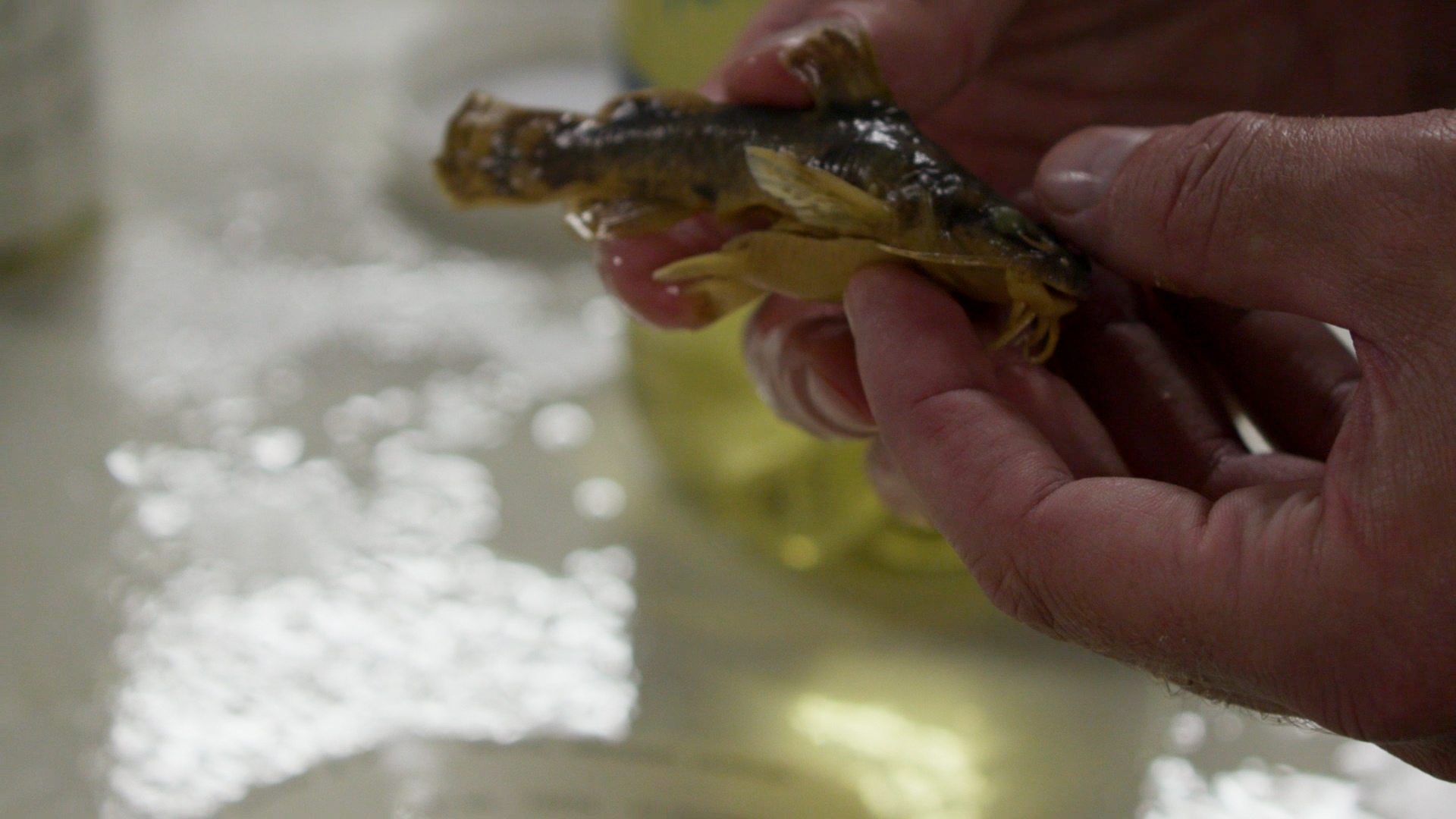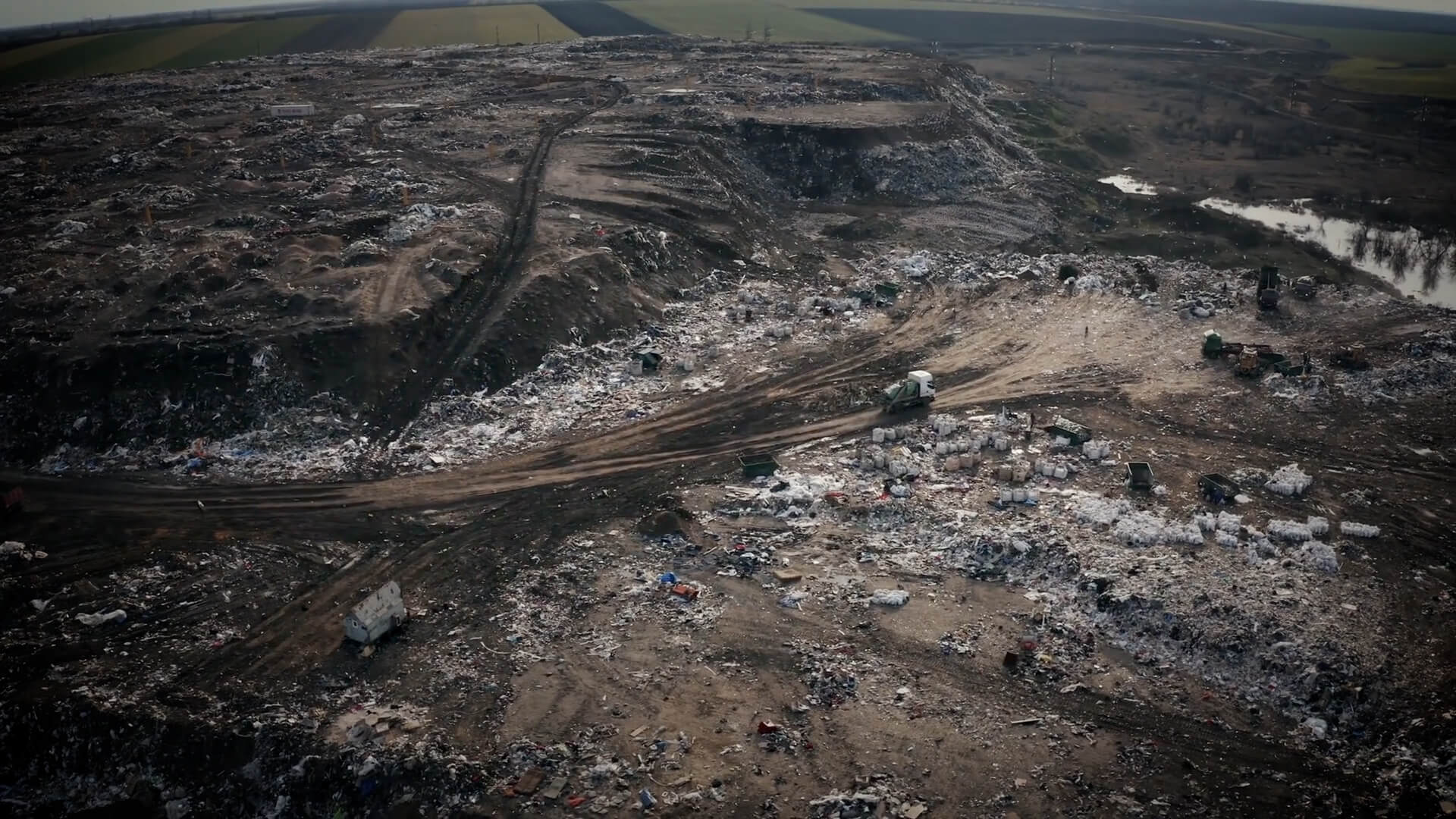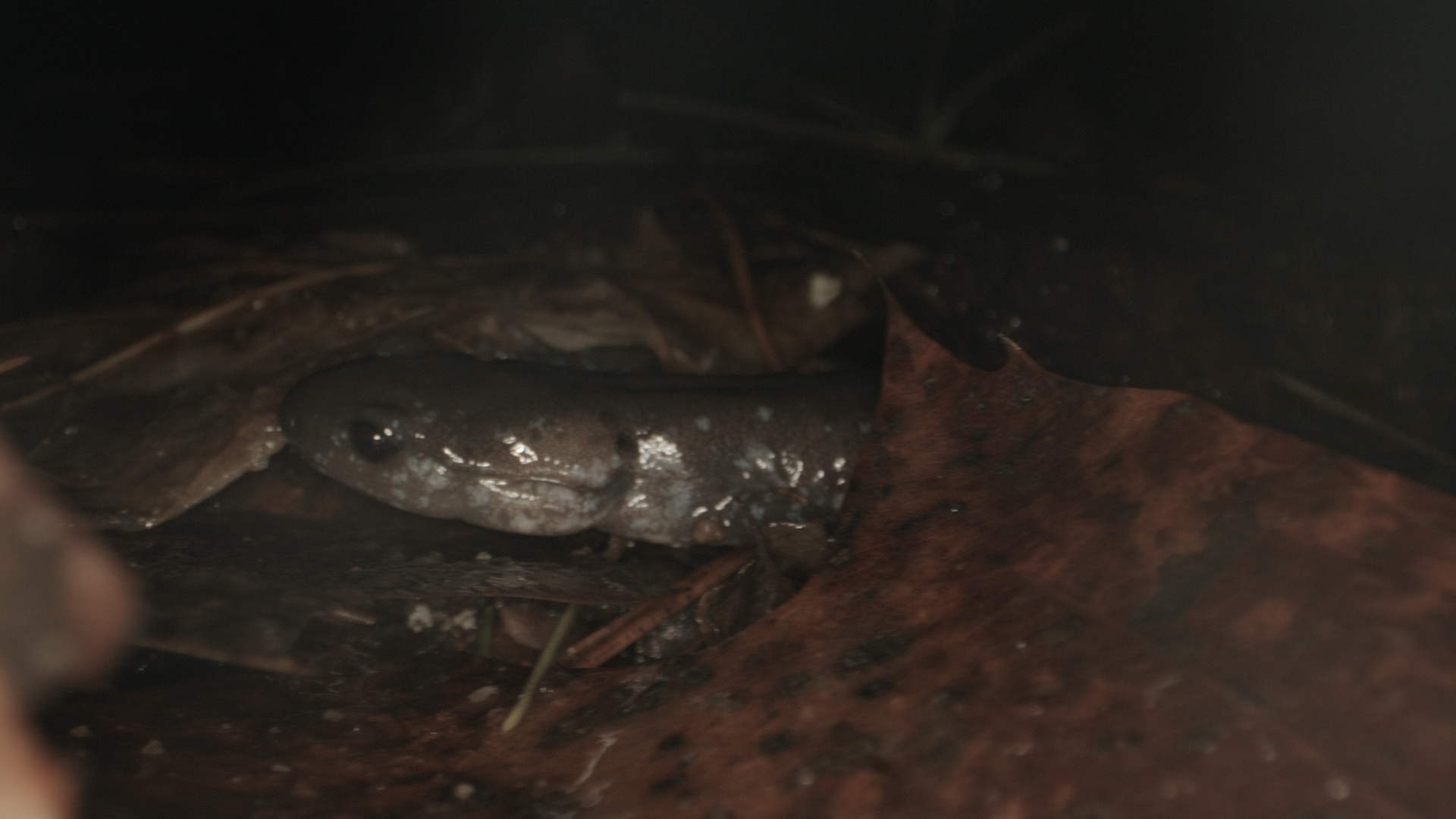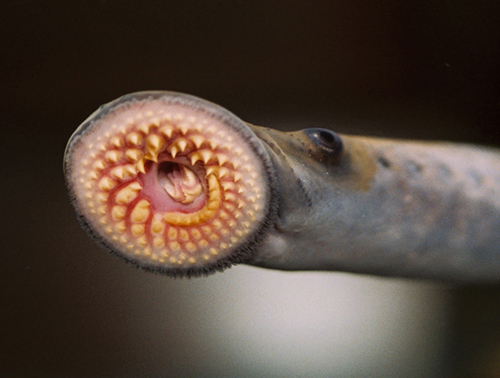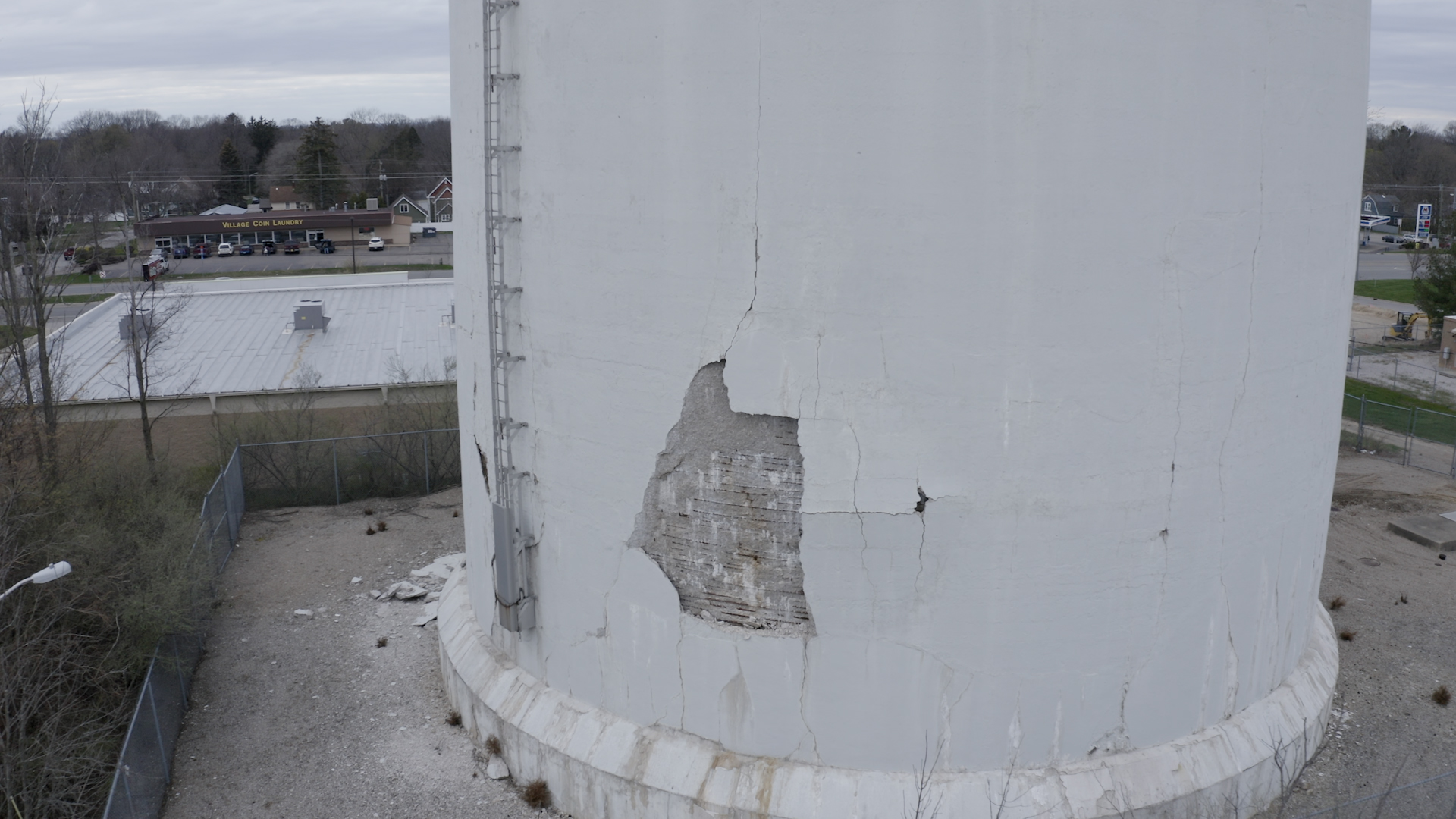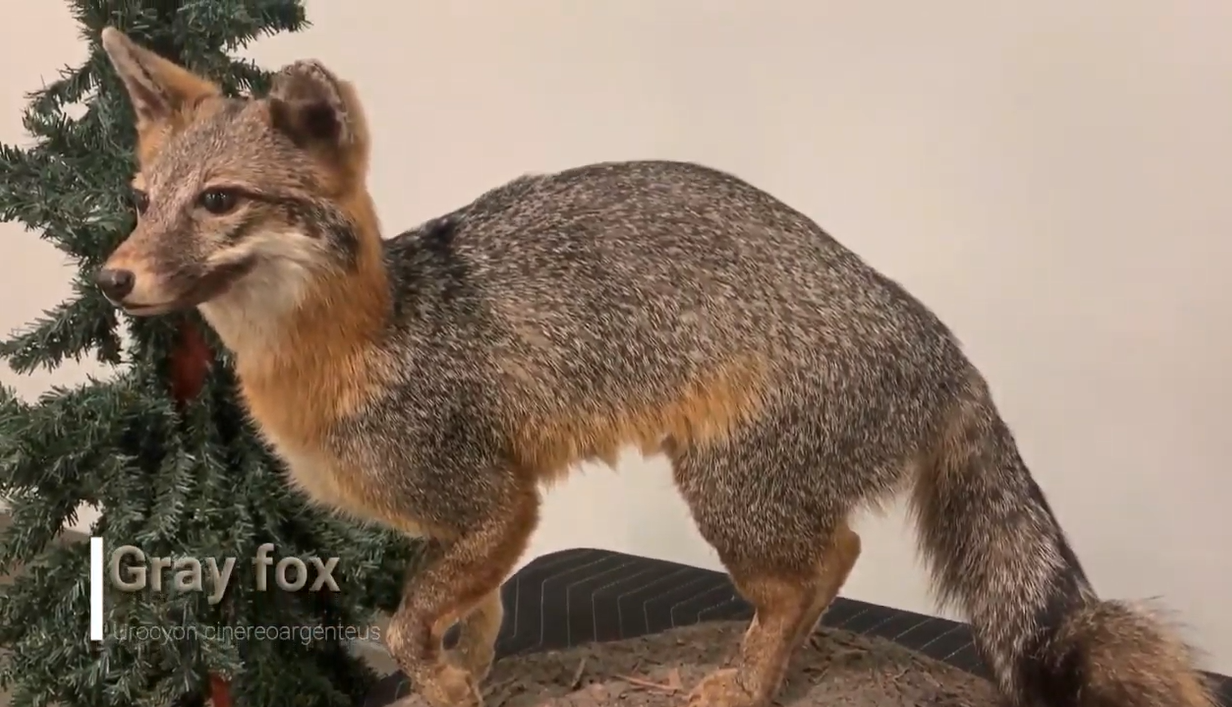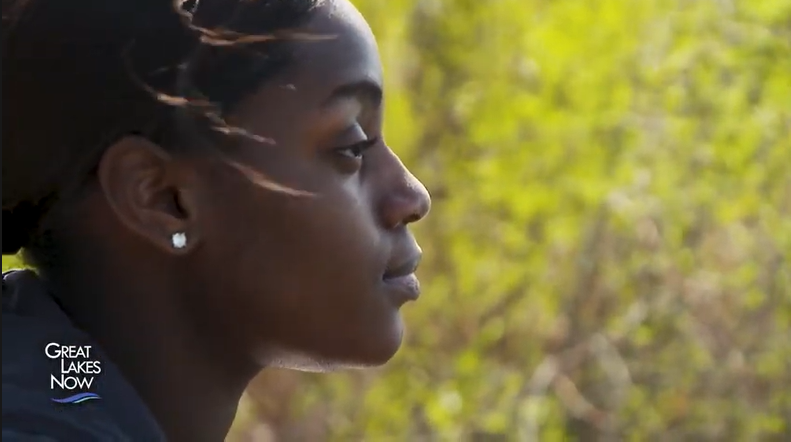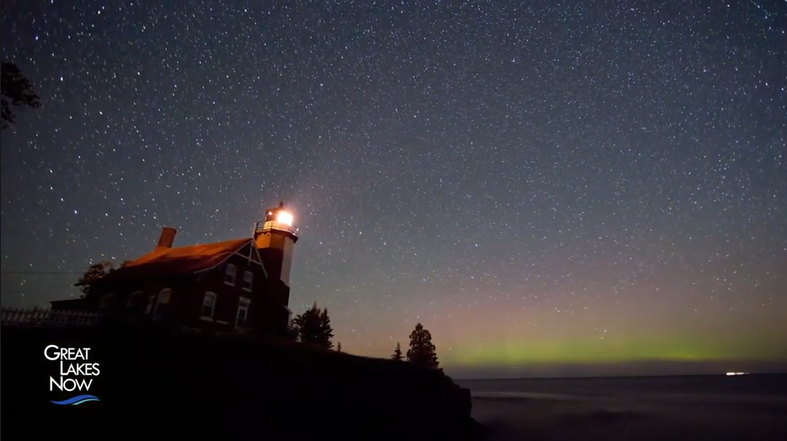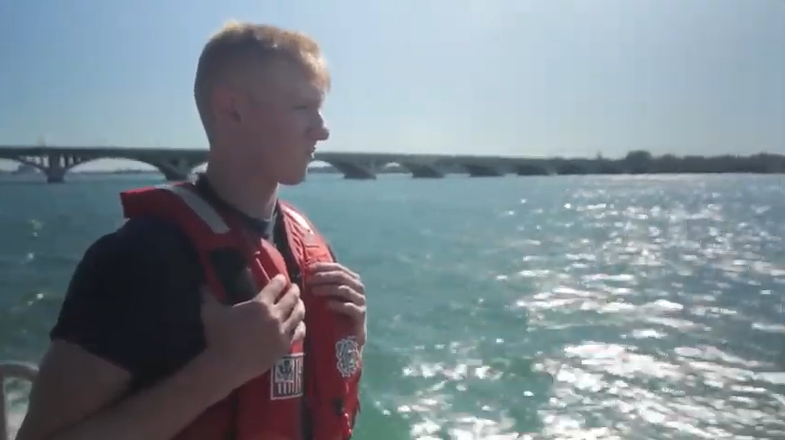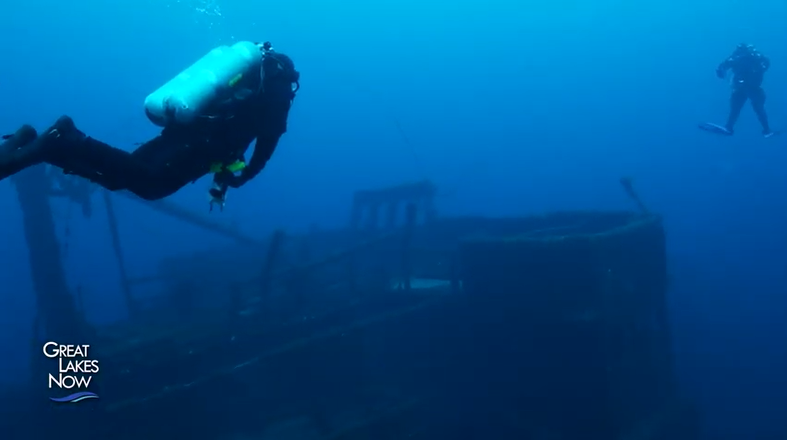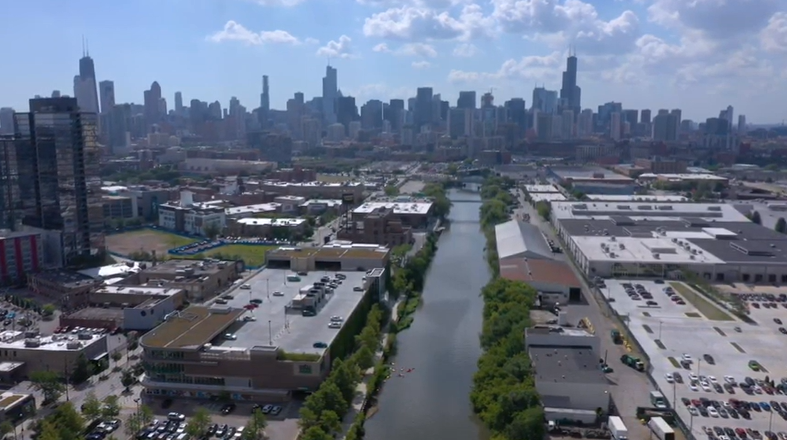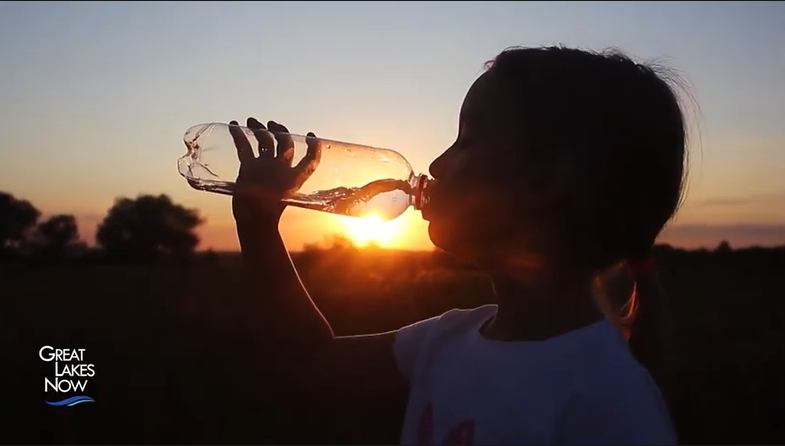Grades
Lesson 2404
The coldest and largest of the Great Lakes has been experiencing steady increases in average temperatures for a few decades, enough to give rise to concern for the lake ecosystem, the weather patterns in the surrounding area, and more.
Lesson 2405
Explore the phenomenon of whitefish population decline in the Jordan River by Green Bay, Wisconsin.
Meet poet laureates, discover a collection of poems written by Flint students, and visit a cool poetry competition in Lansing.
Silver Beach opened as a resort in 1891 when local businessmen built vacation cottages as Silver Beach Amusement and Realty Company along Lake Michigan. There are many stories to tell.
Lesson 2311
Explore the phenomenon of shoreline erosion as students learn how bodies of water, like rivers, carve out the landscapes around them, moving and depositing sediment, supporting the aquatic ecosystem, and providing natural and man-made ways to interact with human activities and the environment.
Lesson 2310
Explore the phenomenon of the moose-wolf population dynamics on Isle Royale as students learn how one of our lesser-known national parks provides a firsthand opportunity to witness biology, ecology, and history in action.
Lesson 2309
Explore the phenomenon of natural gradients as students learn about how the natural flow of the Great Lakes landscape can provide a smooth path for mountain bike riding.
Take a trip into the past and learn all about St. Joseph's historic Silver Beach Amusement Park.
Learn how the the Shadowland Ballroom in St. Joseph, Michigan served the community with music and dancing. Then learn how the ballroom still lives on at Silver Beach County Park today.
Lesson 2308
Explore the phenomenon of erosion as students learn about the diversity of rocks present in the Great Lakes.
Lesson 2307
Explore the phenomenon of corrosion as students learn about sunken ships in the Great Lakes and the glass-bottomed tour boats that take people to explore them.
Lesson 2306
Gain insights into the reality of food waste, research efforts in their local communities to combat it, and conduct an experiment to investigate the impact of food storage methods on food waste.
Lesson 2305
Explore the phenomenon of shipbreaking, including how the technique of breaking down freighters allows us to recycle the materials and parts of the ship for other uses.
Learn about the 7 Grandfather Teachings by taking a visit to the Ziibiwing Center in Mount Pleasant, Michigan.
Lesson 2304
Explore the phase changes associated with water going between the liquid and solid state in order to learn about the formation of ice that is climbable, the melt patterns of ice, and how salinity affects ice melting
Lesson 2303
Explore the phase changes associated with water going between the liquid and solid state in order to learn about the formation of ice that is climbable, the melt patterns of ice, and how salinity affects ice melting
Learn about the 7 Grandfather Teachings by taking a visit to the Ziibiwing Center in Mount Pleasant, Michigan.
Lesson 2302
Explore the phase changes associated with water going between the liquid and solid state in order to learn about the formation of ice that is climbable, the melt patterns of ice, and how salinity affects ice melting
Lesson 2301
explore the phenomenon of water pollution from combined sewer systems in the Great Lakes by learning about the smart sewer technology developed at Notre Dame and implemented in South Bend, IN.
Dive into the rich history, culture and commerce of our state.
Take a trip with Alexis Dahl to the Marquette Harbor Lighthouse. Learn about how lighthouses work and their fascinating history.
Alexis Dahl takes us on a tour of the Maritime Museum in Marquette, Michigan. Learn all about how Lake Superior has impacted the lives of almost every Michigander.
Learn about the history of the timber industry in Michigan by visiting the Castle Museum in Saginaw, Michigan.
Learn about the Castle Museum's Automotive Production exhibit.
Explore Saginaw's Castle Museum. Learn all about its architecture, why it was built, and what it is today.
Explore the Living in America exhibit at the Arab American National Museum.
Learn about the four major periods of immigration from the 22 countries that make up the Arab world to the United States, and what push and pull factors lead to each era of immigration.
Learn about rich history of activists and activism in the Arab American community including the modern day.
Bridge the chasm between the generation who endured the nightmare of World War II and today’s bright-eyed, tech-savvy youths, who may only have a limited grasp of what their elders suffered.
Lesson 2211
Explore the phenomenon of venomous fish in the Great Lakes by learning about the Northern Madtoms.
Lesson 2210
Explore the sport of eFoiling and how Newtonian physics can be used to explain the phenomenon of the surfboard moving on the Great Lakes.
Lesson 2209
Explore the phenomenon of sound waves underwater used to map landforms and how modern technology is helping update the maps of the terrain beneath the Great Lakes.
Lesson 2209
Explore the phenomenon of biodiversity in the Great Lakes and the efforts one museum in Ontario, Canada has taken to catalog it.
Lesson 2208
Explore the phenomenon of coal ash contamination in groundwater and the threat it poses to Lake Michigan and other areas of the Great Lakes waterways.
Lesson 101
Help answer the question: What is special about Michigan? Then work on compound words and read some facts about Michigan, and RACE to write an informational text.
Lesson 102
Learn about compound words, read about Michigan, and write an informational text.
Lesson 103
What is special about Michigan? Learn about the re- and un- prefixes, read a hybrid text about a Michigan turtle, and work on some informational writing.
Lesson 2207
This lesson will explore the phenomenon of salamander migration — across a main road — in Presque Isle Park near Lake Superior [...]
Lesson 105
Help answer the big question: what makes you a Michigan kid? Learn about the -ful and -less suffixes and practice narrative, writing.
Lesson 106
Learn how base words change when we add a prefix or a suffix, and work on some narrative writing.
Lesson 110
Learn about the Great Lakes State, Michigan. Then, help solve a mystery word.
Lesson 2206
This lesson will explore the phenomenon of invasive species in the Great Lakes, specifically the sea lamprey, to help students [...]
Lesson 2205
Based on an independent project by the Great Lakes News Collaborative to better understand the real cost of water, this [...]
Learn about the two fox species we have here in Michigan. Discover what makes each fox unique and learn some ways to identify them.
Intern Brionne Davis helped produce a "video diary" for release on Earth Day in advance of the Spring Clean Up on Belle Isle in Detroit.
When it comes to seeing and photographing the northern lights, the Great Lakes region is one of the best destinations in the lower 48. Photographer Shawn Malone has won awards for her night sky photography. She and Adler Planetarium’s Nick Lake explains what to look for and what to avoid when viewing and photographing the skies.
From a station on Belle Isle, U.S. Coast Guard boats patrol the Detroit River from Lake St. Clair to Lake Erie. Offer work in partnership with Canadian authorities since this is an international waterway. Go along and see how they ensure boating safety and hear about search-and-rescue and border protection efforts.
The Great Lakes only national marine sanctuary brings underwater history up close. Whether you’re in a glass-bottomed boat, looking down from a kayak, or diving underwater, the shipwrecks at the Thunder Bay National Marine Sanctuary give you a haunting look at the past.
A partnership of the John G. Shedd Aquarium’s Kayak for Conservation program and the Urban Rivers organization has created new “floating” islands to replace the habitat and give citizen scientists an opportunity to help with the project and its research. These artificial “islands” are anchored to the river’s edge and bottom, providing a base for plant species to grow and places for fish to spawn and grow. Turtles and birds also find food and shelter among the grasses.
Did you know that over 10,000 tons of plastics enters the Great Lakes every year? Researchers in New York have been looking into plastics pollution in the Great Lakes as they try to grasp the scope and look for possible solutions.
Grades
Lesson 2404
The coldest and largest of the Great Lakes has been experiencing steady increases in average temperatures for a few decades, enough to give rise to concern for the lake ecosystem, the weather patterns in the surrounding area, and more.
Lesson 2405
Explore the phenomenon of whitefish population decline in the Jordan River by Green Bay, Wisconsin.
Meet poet laureates, discover a collection of poems written by Flint students, and visit a cool poetry competition in Lansing.
Silver Beach opened as a resort in 1891 when local businessmen built vacation cottages as Silver Beach Amusement and Realty Company along Lake Michigan. There are many stories to tell.
Lesson 2311
Explore the phenomenon of shoreline erosion as students learn how bodies of water, like rivers, carve out the landscapes around them, moving and depositing sediment, supporting the aquatic ecosystem, and providing natural and man-made ways to interact with human activities and the environment.
Lesson 2310
Explore the phenomenon of the moose-wolf population dynamics on Isle Royale as students learn how one of our lesser-known national parks provides a firsthand opportunity to witness biology, ecology, and history in action.
Lesson 2309
Explore the phenomenon of natural gradients as students learn about how the natural flow of the Great Lakes landscape can provide a smooth path for mountain bike riding.
Take a trip into the past and learn all about St. Joseph's historic Silver Beach Amusement Park.
Learn how the the Shadowland Ballroom in St. Joseph, Michigan served the community with music and dancing. Then learn how the ballroom still lives on at Silver Beach County Park today.
Lesson 2308
Explore the phenomenon of erosion as students learn about the diversity of rocks present in the Great Lakes.
Lesson 2307
Explore the phenomenon of corrosion as students learn about sunken ships in the Great Lakes and the glass-bottomed tour boats that take people to explore them.
Lesson 2306
Gain insights into the reality of food waste, research efforts in their local communities to combat it, and conduct an experiment to investigate the impact of food storage methods on food waste.
Lesson 2305
Explore the phenomenon of shipbreaking, including how the technique of breaking down freighters allows us to recycle the materials and parts of the ship for other uses.
Learn about the 7 Grandfather Teachings by taking a visit to the Ziibiwing Center in Mount Pleasant, Michigan.
Lesson 2304
Explore the phase changes associated with water going between the liquid and solid state in order to learn about the formation of ice that is climbable, the melt patterns of ice, and how salinity affects ice melting
Lesson 2303
Explore the phase changes associated with water going between the liquid and solid state in order to learn about the formation of ice that is climbable, the melt patterns of ice, and how salinity affects ice melting
Learn about the 7 Grandfather Teachings by taking a visit to the Ziibiwing Center in Mount Pleasant, Michigan.
Lesson 2302
Explore the phase changes associated with water going between the liquid and solid state in order to learn about the formation of ice that is climbable, the melt patterns of ice, and how salinity affects ice melting
Lesson 2301
explore the phenomenon of water pollution from combined sewer systems in the Great Lakes by learning about the smart sewer technology developed at Notre Dame and implemented in South Bend, IN.
Dive into the rich history, culture and commerce of our state.
Take a trip with Alexis Dahl to the Marquette Harbor Lighthouse. Learn about how lighthouses work and their fascinating history.
Alexis Dahl takes us on a tour of the Maritime Museum in Marquette, Michigan. Learn all about how Lake Superior has impacted the lives of almost every Michigander.
Learn about the history of the timber industry in Michigan by visiting the Castle Museum in Saginaw, Michigan.
Learn about the Castle Museum's Automotive Production exhibit.
Explore Saginaw's Castle Museum. Learn all about its architecture, why it was built, and what it is today.
Explore the Living in America exhibit at the Arab American National Museum.
Learn about the four major periods of immigration from the 22 countries that make up the Arab world to the United States, and what push and pull factors lead to each era of immigration.
Learn about rich history of activists and activism in the Arab American community including the modern day.
Bridge the chasm between the generation who endured the nightmare of World War II and today’s bright-eyed, tech-savvy youths, who may only have a limited grasp of what their elders suffered.
Lesson 2211
Explore the phenomenon of venomous fish in the Great Lakes by learning about the Northern Madtoms.
Lesson 2210
Explore the sport of eFoiling and how Newtonian physics can be used to explain the phenomenon of the surfboard moving on the Great Lakes.
Lesson 2209
Explore the phenomenon of sound waves underwater used to map landforms and how modern technology is helping update the maps of the terrain beneath the Great Lakes.
Lesson 2209
Explore the phenomenon of biodiversity in the Great Lakes and the efforts one museum in Ontario, Canada has taken to catalog it.
Lesson 2208
Explore the phenomenon of coal ash contamination in groundwater and the threat it poses to Lake Michigan and other areas of the Great Lakes waterways.
Lesson 101
Help answer the question: What is special about Michigan? Then work on compound words and read some facts about Michigan, and RACE to write an informational text.
Lesson 102
Learn about compound words, read about Michigan, and write an informational text.
Lesson 103
What is special about Michigan? Learn about the re- and un- prefixes, read a hybrid text about a Michigan turtle, and work on some informational writing.
Lesson 2207
This lesson will explore the phenomenon of salamander migration — across a main road — in Presque Isle Park near Lake Superior [...]
Lesson 105
Help answer the big question: what makes you a Michigan kid? Learn about the -ful and -less suffixes and practice narrative, writing.
Lesson 106
Learn how base words change when we add a prefix or a suffix, and work on some narrative writing.
Lesson 110
Learn about the Great Lakes State, Michigan. Then, help solve a mystery word.
Lesson 2206
This lesson will explore the phenomenon of invasive species in the Great Lakes, specifically the sea lamprey, to help students [...]
Lesson 2205
Based on an independent project by the Great Lakes News Collaborative to better understand the real cost of water, this [...]
Learn about the two fox species we have here in Michigan. Discover what makes each fox unique and learn some ways to identify them.
Intern Brionne Davis helped produce a "video diary" for release on Earth Day in advance of the Spring Clean Up on Belle Isle in Detroit.
When it comes to seeing and photographing the northern lights, the Great Lakes region is one of the best destinations in the lower 48. Photographer Shawn Malone has won awards for her night sky photography. She and Adler Planetarium’s Nick Lake explains what to look for and what to avoid when viewing and photographing the skies.
From a station on Belle Isle, U.S. Coast Guard boats patrol the Detroit River from Lake St. Clair to Lake Erie. Offer work in partnership with Canadian authorities since this is an international waterway. Go along and see how they ensure boating safety and hear about search-and-rescue and border protection efforts.
The Great Lakes only national marine sanctuary brings underwater history up close. Whether you’re in a glass-bottomed boat, looking down from a kayak, or diving underwater, the shipwrecks at the Thunder Bay National Marine Sanctuary give you a haunting look at the past.
A partnership of the John G. Shedd Aquarium’s Kayak for Conservation program and the Urban Rivers organization has created new “floating” islands to replace the habitat and give citizen scientists an opportunity to help with the project and its research. These artificial “islands” are anchored to the river’s edge and bottom, providing a base for plant species to grow and places for fish to spawn and grow. Turtles and birds also find food and shelter among the grasses.
Did you know that over 10,000 tons of plastics enters the Great Lakes every year? Researchers in New York have been looking into plastics pollution in the Great Lakes as they try to grasp the scope and look for possible solutions.

